I've received a fair amount of feedback, most of it positive, regarding the case I made recently for allowing dual nationality to all foreigners. But, there are a few points I'd like to clarify here, which I think merit further discussion.
On selfishness and sacrifice
The first is this idea that, impossible or not, to decline to renounce one's original citizenship is somehow inherently selfish - to want the best of both, or to be unwilling to make any sacrifices.
I understand this as an instinctive first reaction - it's one of those "makes sense on its face" arguments - but with even a bit of dissection falls apart.
First, I reject on its face the notion that a person should have to make massive sacrifices to be a part of the society of the country they call home. That's not the argument I want to make, but I want to put that core idea out there. Some people take this further, and try to justify giving missionaries dual nationality on the basis of their "sacrifices" for the good of the communities they live in, but that the rest of us don't because we live more comfortable lives.
First, let's be clear: missionaries are not selfless. The good works they do - and they do some good things, I admit, and I don't think they're bad people - are done with their own goals in mind: converting members of the community to their faith, which is a benefit to the churches that often fund their missions. I still think they deserve a path to citizenship despite fundamentally disagreeing with the notion of evangelizing, because I think anyone who has decided to make Taiwan their permanent home and contributes to it in some way deserves that path. However, this argument is then extended and ends up somewhere around "you have a nice apartment and a job and therefore you don't deserve citizenship", which I quite literally do not understand as a logical conclusion. Do we really judge who gets to be a member of society based on whether they have wood floors or not? "You live well so you don't deserve political representation"? Really?
I get it, I really do - the idea is that we already have good lives, so we shouldn't want more. However, wanting political representation and to live a normal life as a member of society is not the same at all as having a couch that is not from IKEA (though honestly, if we hadn't inherited the couch we do have from the former tenant, our couch would absolutely be an IKEA model). The logical conclusion of this is that you should not agitate politically if you are comfortable economically, but economics and politics are separate things. I don't want more money - I want to be a member of society.
That said, I really don't want to make it my main argument - I want to point out the ridiculousness of it and move on.
Here's the thing about assuming that renouncing one's original citizenship is a 'sacrifice' and to not want to do so is 'selfish'.
To take the only path to citizenship currently available to me, I would have to quite literally renounce my core values. As much as I complain about the US and insist on my own self-sufficiency and freedom, fundamentally I believe in caring for one's family when they need it. I have already written about why I must retain American citizenship if the need to care for my father arises, and won't repeat myself.
I will, however, point out that the selfish act here would be to abandon my family for my own desires vis-a-vis my life in Taiwan. It is, if anything, a sacrifice that I do not pursue this route, because family, should they need me, trumps what I want in this regard. I would also point out that this means that asking me to renounce American citizenship is tantamount to asking me to put my desires over the needs of said family, and to essentially change who I am as a person - to be willing to be the sort of cold-hearted individual who would choose her immediate satisfaction over possible future family caretaking.
I mean it - I will give Taiwan what they want in any other regard. They want money? I'll pay it. They want me to get my PhD and become a professor, even though I'm happier (and I think a more effective teacher and contributor to the field) outside the academic bureaucracy and would normally stop at a Master's? I'll do it. Mandate that 36-year-old women must also do military service? I'll do it. Pound of flesh? That can be arranged. Start a charity and work at it as my main cause? Already considering it, though kind of hard to do if I'm going to go the academic route until I'm finished shuttling back and forth between Taiwan and the UK for my degree(s).
But I will not abandon my family.
For a culture that places so much emphasis on being filial, you would think the Taiwanese government would understand this.
All that aside, I fundamentally find the idea that wanting to be closer to - rather than maintaining and enforced distance from - the society of the country one calls home is inherently selfish in some way. That wanting to participate civically is selfish - I thought civic duty was meant to be an act of giving? I truly don't understand the logic here, that it is somehow a problem or indicative of bad character that I'd want these things.
On history
I also got a very interesting comment on my assertion that "Taiwanese history is not my history". The point that was made was that if we expect the descendants of the 1945-1949 KMT diaspora, as well as those who took part in it who are still alive, to consider their history to be intertwined with "Taiwanese" history rather than Chinese history, how can we decline to do the same?
However, I'm not saying I won't do the same. I gladly will.
In fact, the ten years of Taiwanese history that have occurred while I've lived here are my history - I live here too. If we stay permanently and do get citizenship, when I am old I will look back on my life and perhaps then think of myself as Taiwanese, and Taiwanese history being my history.
What I meant by that comment was, the agonies and successes of Taiwanese history that happened to the ancestors of the Taiwanese alive today did not happen to my ancestors. I don't want to appropriate or seem like I am appropriating that legacy. The sum of history and cultural legacy that made me who I am, compared to that of my Taiwanese friends, is different, and I feel it's OK to admit that while still hoping to assimilate more. The idea is to avoid "you owe me your history, culture and legacy!" and instead aim for "I would like to be a part of your society if you'll have me, and as I do want it badly, I would like to make a case for that."
On being "owed" something
There is a popular meme going around that shows a blank piece of paper with a title along the lines of "a comprehensive list of everything you are entitled to and the world owes you".
It's cute, and I get the instinctive reaction to agree. However, I actually don't fully believe that - if you live in the forest as hermit who doesn't pay taxes or contribute to a society in any way, the world owes you nothing, that's true. But if you are expected to pay taxes, obey laws, support yourself, contribute to the economy and civic life of a society, in fact, I do believe that society owes you something in return. This is the basic argument for why societies that can do so owe their citizens a social safety net, and I happen to agree with it. Like dedication to family, it is a core value.
That, again, is not the argument I want to make however. I just want to point out that that line of thinking is inherently flawed.
What I want to say is this: I didn't come to Taiwan already knowing citizenship was almost impossible to obtain, and thinking I'd just complain about it whenever I decided I happened to want it. It was a much more organic process. I came here thinking I'd stay for two or three years, but Taiwan, being like Hotel California (as someone once put it to me), has made it so I can check out any time I like, but it seems I can never (don't want to) leave. Only then did I decide to advocate for the chance to participate more fully - after I'd already been here for a decade, contributed in the same way citizens who were born here have done, and tried to be a net benefit to this country rather than a drain on it. I was already here contributing when my thoughts on this topic became defined, not standing on the outside banging on the door.
Do I think, for all of this, that I am "owed" citizenship? Well, no, not in the sense that every country gets to decide for itself what foreigners can and cannot have. I think I've earned it, but I don't think I'm 'owed' it, at least not in the world we live in.
Taiwan, however, is a country that has increasingly insisted it is based on shared cultural values rather than ethnocentric nationalism. They themselves insist that one does not need to be from a particular ethnicity, culture or group to be 'Taiwanese'. Their history museum in Tainan even has a plaque saying so!
If they truly believe this, and this is the kind of country they want to build, it is hypocritical to then make it difficult for those who lack blood ties to Taiwan who are not the lords and ladies of the 1% (or missionaries) to be a part of that society. If they really believe it, they need to stop setting up impossible barriers (and, as I've explained, the need to renounce is an impossible barrier for many of us) and allowing double standards for naturalized vs. born citizens. If they want to keep up that rhetoric, they do owe the people they're talking about a shot at actually being 'Taiwanese'. Forcing us to be perpetual outsiders who can't even have a mortgage or vote for the leaders whose governance affects us is the opposite of this sentiment. It's having your cake and eating it too.
On radical social change
I've also heard the argument that changing the law so completely cannot be done quickly because Taiwan progresses slowly, and to do otherwise would constitute 'radical social change' that would somehow cause problems for society.
This is wrong.
Just as marriage equality is not 'radical social change' but rather a logical expansion of human rights and recognizing what, for many couples, is already true, allowing immigrants in Taiwan to naturalize as dual citizens is not radical. We're already here and already contributing - not much will change as a result. All it is doing is expanding the scope of the rights of people who live in Taiwan, and acknowledging what is already true about our lives here.
Most Taiwanese, when made aware of the double standards that currently exist, voice support for creating a more possible and reasonable path to citizenship for foreign residents. They too are done with ethnocentrism, whether it's Hoklo or Han chauvinism. It is not scandalous or radical to then make the necessary political changes reflecting this.
I don't believe a change like this would result in an influx of people hoping to get citizenship - at least not among white collar workers (I don't believe in dividing who can have dual nationality and who can't based on social class, I'm just pointing out a reality.) Most would come, and eventually leave. Those who stay long enough - seems like it would have to be about ten years to get an APRC and then citizenship - would have demonstrated enough of a commitment to Taiwan to merit naturalization. Most importantly, they'd already be here. It would be a mere formalization of the status they already possess.
Showing posts with label taiwanese_culture. Show all posts
Showing posts with label taiwanese_culture. Show all posts
Saturday, April 15, 2017
Monday, March 27, 2017
Dear Chiu Tai-san: it doesn't matter if marriage equality is "Chinese", because Taiwan is not "Chinese"
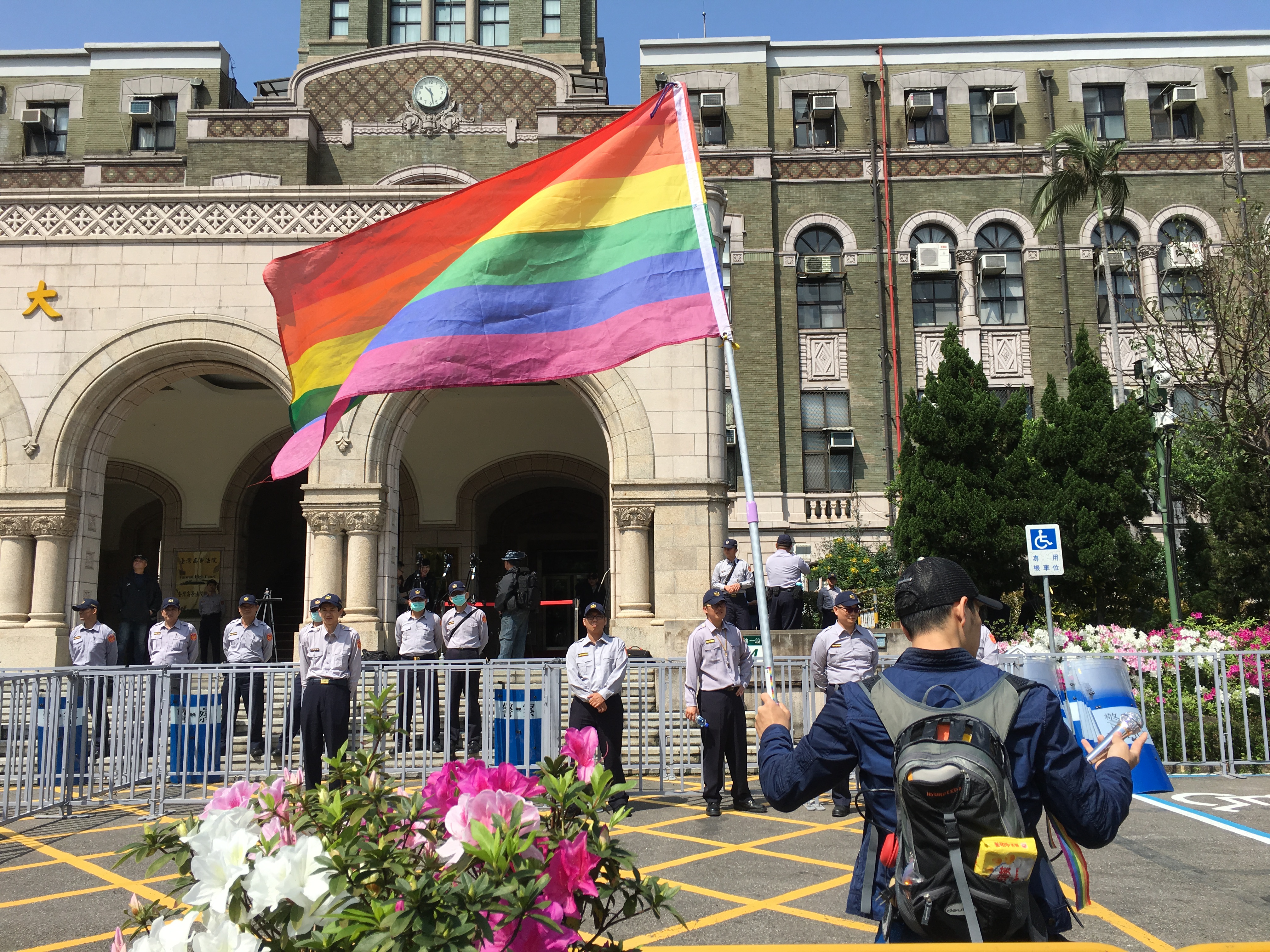
I just can't.
Even.
I wish I had more to say about the demonstrations in front of the Judicial Yuan on Friday, but truth be told, they were tiny. I tend to agree with Brian Hioe that the reason was likely not that it was a work day (a lot of people who show up are students, and previous government actions have caused far larger rallies during work hours). Most likely, it was due to a general feeling that pushing for marriage equality through the Judicial Yuan is either not likely a fruitful path, or that these oral arguments were not particularly significant.
It seems a few more people did show later in the day (I was only able to go in the morning) but while I was there, it was a slew of police officers there for security against what was maybe 20 people. I was sad to see so few, but honestly, during my stopover, there were no anti-equality demonstrators. So we still had them beat 20-to-0! (I'm told that a few did eventually show up, but I was long gone).
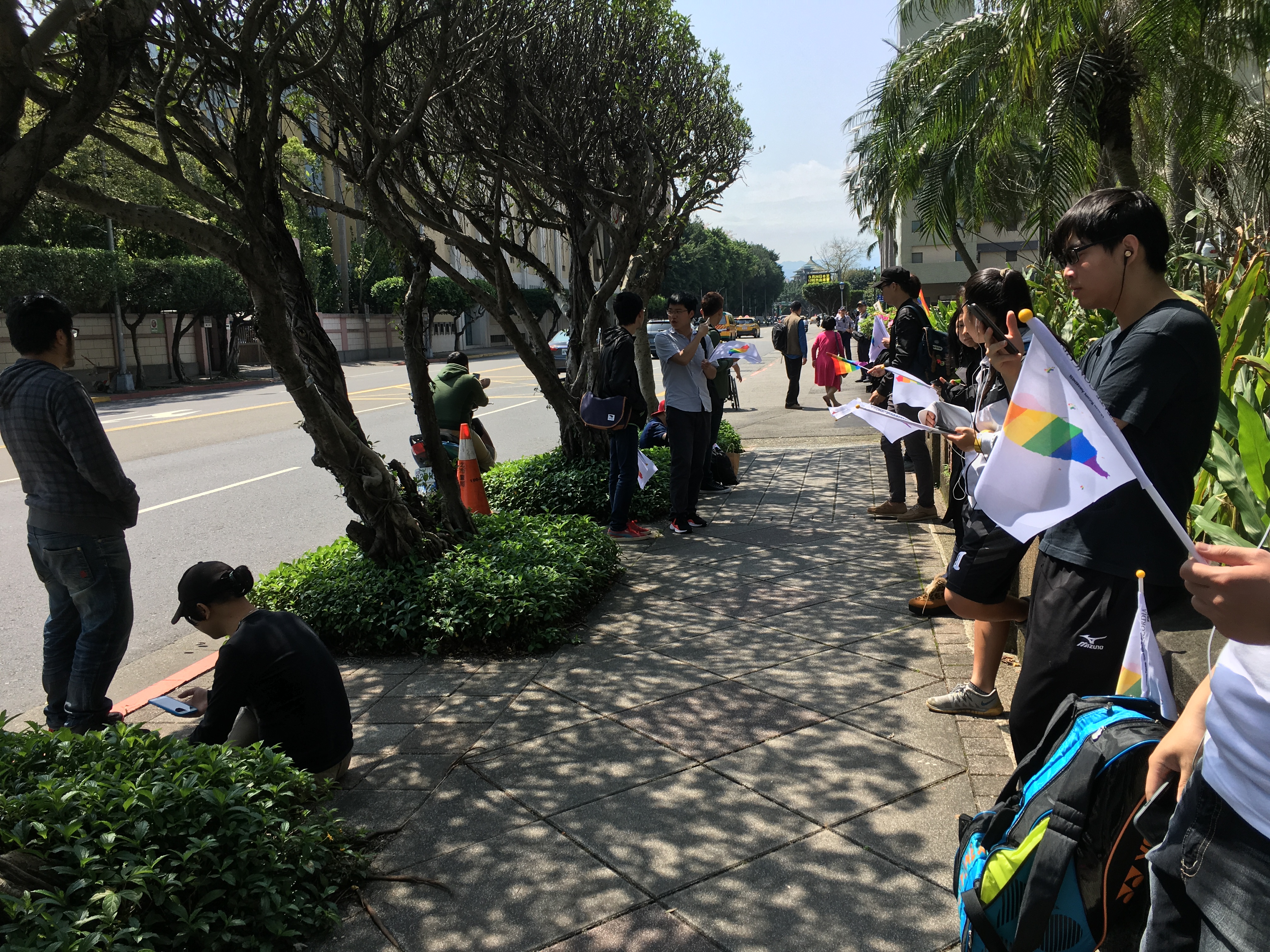
Otherwise, I have little to say that hasn't already been said over the weekend, and I just don't know what to say about Justice Minister Chiu Tai-san's argument. Chiu - who is a Tsai appointee, remember - argued so strongly for inequality that it seemed to surprise even more conservative voices.
From Michael Turton:
Our DPP Justice Minister revealed himself to be not only a retrograde thinker, but a Han nationalist to boot. Speaking on gay marriage at a hearing that was live streamed, Justice Minister Chiu Tai-san said:
“The Civil Code stipulates that marriage shall be between a man and a woman, and as such it is not unconstitutional. The Constitution guarantees citizens’ right to marry as that between a man and a woman, while marriage between people of the same sex is not covered under the Constitution,” Chiu said.
“For thousands of years in the nation’s history, society has instituted traditions and codes of conduct regarding marriage. Has there ever been a cultural institution or social phenomenon for same-sex marriage?” Chiu said.
“For thousands of years in the nation’s history, society has instituted traditions and codes of conduct regarding marriage. Has there ever been a cultural institution or social phenomenon for same-sex marriage?” Chiu said.
“Without a doubt, there has been none,” Chiu said.
He then quoted one section of the Chinese classic I Ching (易經), also known as the Book of Changes, which reads: “With the existence of the earth and the sky, there came all living things. With the existence of the earth and the sky, there came men and women,” which he said illustrates that Chinese marriage traditions have — since ancient times — been based on a union between a man and a woman.
It was unclear at first whether his views were meant to represent the Executive Yuan until Premier Lin Chuan explicitly remarked that they weren't.
In any case, what the fuck is wrong with you, Chiu Tai-san? Like, what the hell even? You know quite well that the person who appointed you disagrees with you, you know quite well (whether you want to admit it or not, you crusty old shitlord) that the general consensus of society is against you, and you must know by now that you are hurting, not helping, the administration that you currently depend on for your job. They need the youth vote, and if government officials keep mouth-pooping turds like this, they won't get it.
Queerious said it best:
It is unknown whether Chiu consulted the President or the Executive Yuan prior to the oral arguments, but there are only two possible scenarios here. In the first scenario, he discussed his testimony with the presidential office and the Executive Yuan and they gave him the go ahead. In the alternative, he did not speak to them, and neither the presidential office nor the Executive Yuan had the forethought to vet his arguments to ensure that they would not be an embarrassment to the government that still claims to support marriage equality. Both scenarios are unacceptable to marriage equality supporters and may be indicative of a dysfunctional government that fails to understand the real-life consequences of its ineptitude and passiveness.
(If you are wondering why my two long quotes are formatted differently, it's because I don't know how to fix that).
But what makes this word turd from Chiu especially stinky is that he's straight-up wrong. Marriage has not, through history, in basically any culture, been "one man and one woman". That's a relatively recent phenomenon, and honestly, something of a heavily Christian-tinged one. In China, the most well-known kind of ancient marriage was one man with many wives, but here you can see there is a whole list of other possible choices. (Michael is slightly incorrect, by the way - I didn't track down that website, my husband did as he joked that if Taiwan were going to go back to traditional notions of Chinese marriage, that I ought to ready the guest room for his second wife).
One that it doesn't mention - you can also marry a ghost (but apparently not your real-life human lover and partner of many years, if you happen to have the same genitals).
It almost feels like Chiu and his ilk are taking arguments that sound like Western-style "Christian" arguments against equality, and using them to somehow justify it "in Chinese culture". Gee, I wonder where they got that rhetorical tactic? It hints vaguely at Chinese nationalist "5000 years of culture" type nonsense but has a distinctly church-of-hateful-people tinge to it.
Of course, arguments about whether homosexual unions are compatible with Chinese culture are meaningless, especially in Taiwan, because Taiwan is not a part of China. Frankly, I was somewhat surprised to hear this line of argument from someone in the DPP, especially someone whose political past is associated with pushing the DPP to more strongly embrace Taiwan independence. Tai-san, buddy, do you really hate TEH GAYS so much that you'd adopt pro-China, Han nationalist rhetoric? Really? What the fuck man?
In any case, who gives a shit what is "traditional Chinese culture", at least when it comes to Taiwan? Not only does culture evolve, as it may in China, but arguing this is like arguing that we can't embrace progressive social ideals in the US because they are not a part of traditional, oh, I don't know, Celtic culture in ancient Britannia. Or something.
What Taiwan has been doing since the end of the authoritarian era is figuring out what Taiwanese culture is, and how it is distinct from Chinese. I am not Taiwanese and cannot speak for Taiwan, but I will say that my observations have led me to believe that Taiwanese culture embraces a level of tolerance not found in China, and a live-and-let-live attitude outside of one's own family (intra-family dynamics may be another story, but can vary quite a bit). People have labeled Taiwan as conservative: I don't think so. We wouldn't be here fighting for Taiwan to be the first nation in Asia to embrance marriage equality with a realistic chance of winning, if it were. People have labeled Taiwan as 'traditional' and the Taiwanese as 'obedient' or 'unwilling to speak up'. I don't buy this either. First, it's a blanket stereotype. Second, this is a nation prone to rebellion, settled first by seafaring indigenous people and then by people who were not always even considered Chinese, and in any case were often the travelers, rabblerousers and assorted rebellious types on the continent (would you decide to move to an offshore island and most likely work for the Dutch if you were an established, conservative scion of Minnan society?) Third, this is a nation of people who, despite being told at every turn that they belong to some other greater power and being denied international recognition even when they claim it for themselves, refuse to give up and will take to the streets for what they believe in. Who wake up every day with 1300+ missiles pointing right at them and yet keep working to build a better nation, quietly insisting that it is, in fact, a nation while the entire world pretends they can't hear.
To me, this is not a nation of supplicants, it's a nation of rebels, or at least people with a rebellious streak, and I love it.
In such a nation, marriage equality is not a crazy notion. It fits perfectly. It doesn't matter if it's "Chinese" or not, because Taiwan is not Chinese. And marriage equality is - or at least can be - Taiwanese. Same-sex couples have been together since human beings have existed, and in recent decades they've been far more open about it. This isn't about radical social change: the change is already here. This is about an extension of the continuing fight for human rights in Taiwan, and about what kind of country Taiwan wants to be.
Queerious is right - marriage equality is a two-front war, just not, perhaps, in the way they think it is.
It's a two-front war as we fight Christian anti-equality believers on one hand, and "ANCIENT CHINESE CULTURE!" chauvinists on the other. In some cases, despite Christianity also not being traditionally Chinese, they seem to have teamed up.
And Chiu Tai-san can eat a dick.
Thursday, February 16, 2017
The country is broken, but the mountains and rivers remain: a review of Green Island
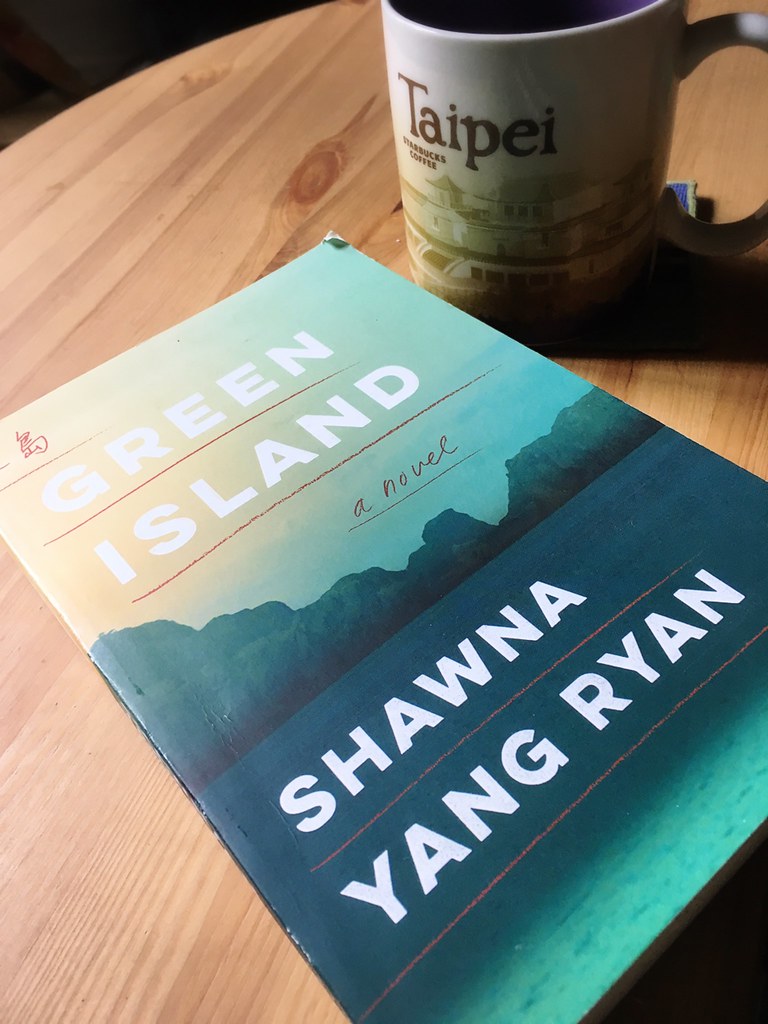
I don't do book reviews often, but as I have recently taken an interest in expanding - and doing a better job of reading - my Taiwan-related book collection, writing more about what I've been reading is pertinent. It's rare that what seems like the entire expat community in Taiwan starts talking about the same book at the same time, but I picked up Green Island quite some time ago because that is exactly what happened. I couldn't not read what everyone else was talking about.
I'm happy - no, grateful - that I did.
Historical fiction is often more fiction than it is historical: I would not recommend that anyone get a feel for, say, Tudor history by reading Philippa Gregory. Green Island is a bold exception - the history, to my eyes, is more or less accurate, and the ways that the various (fictional) characters engage with it are often enrapturing. It is not a true story, but it may as well be - and in fact, a few peripheral characters are clearly composites of real Taiwanese historical figures. With the exception of a few overly florid language choices that can be distracting, a reader might imagine any one of them as somebody's real friend or relative living through real historical events. It felt more like a good friend narrating true family history than a novel.
The unnamed narrator is born on 2-28 (February 28, 1947), a cultural and historical flashpoint burned into the collective memory of Taiwan. I appreciated (and hope I correctly sussed out) the subtle reference to Midnight's Children, where the protagonist is likewise born at exactly the moment that India gains independence. Her father, as a result of actions we all take for granted as basic human rights, finds himself imprisoned on Green Island, where many political prisoners were held through the White Terror era following 2-28. The reverberations of that - an action that the brutal, authoritarian government does not acknowledge let alone apologize for - affect the family deeply. You might say they never fully recovered. Again, this will be a feeling quite familiar to many Taiwanese. For expats, remember that any given local friend might well be affected by a similar family background.
You will learn from this, then, not just the historical events as dates and descriptions marching across the page of a textbook, but the feelings and memories they created and how they affect the national and cultural psyche of Taiwan.
On a personal note, I am no stranger to historical events coloring, like a dollop of red dropped into a bowl of white paint, the history, relationships and outlook of a family. My own family's story takes place a generation before the events of 2-28 and has nothing to do with Taiwan, nevertheless it does allow a particularly personal platform for empathy, not that I need one to feel it. My grandfather's parents escaped from the Armenian genocide in Turkey, my great-grandmother after untold trauma and my great-grandfather after spending some time as a freedom fighter. My grandfather grew up in pre-war Greece, coming to America with his family in his primary school years. I never personally experienced any of this, yet from the food we ate to the language of the hymns in my grandparents' church in Troy, New York (Armenian) to the language my older relatives spoke with each other to common topics of conversation as well as the basis for the anti-Muslim sentiment of that generation - and my generation's subsequent pushing back against that while still being empathetic to what my ancestors lived through - everything up to 2017 carries the tinge, lighter and lighter but still there, of what happened in 1915.
As I told a friend recently, perhaps this is why I care so much about Taiwanese history. It's not my history, but in terms of the broad strokes of the effects of events like the White Terror or the Armenian genocide, it's not that different.
Back to the book. As a long-term expat, reading the descriptions of life in Taiwan at that time felt photo-realistic. Anyone who has spent time here and engages with the cultural geography of Taiwan will practically hear the Taiwanese pop music - you know, the stuff taxi drivers like to play - running through their head as they read. The slightly cloudy jars of local candies and sweets? Yeah, they're still around. The house with the banyan tree that the family lived in? Many of those remain, and I could imagine exploring one that's open the public on my trips outside (or perhaps even within) Taipei. The bicycles, the beer, the books, the typhoon, the outdoor parties, locally called ban dou? The story may be set in mid-century Taiwan but every last one of these things calls forth a host of sense-memories in the early 21st.
If you have a strong grasp of Taiwanese history, you will cry. I did, and I'm not a crier. You may have to put it down at times - it can get raw and painful. As you read it, you might feel you are engaging not with a book but with the agonizing history of a nation that has, at every turn, been beaten down and treated unfairly.
Green Island has been criticized, mildly, for its florid descriptive language. I can't fault it too much for this: the Taiwanese landscape almost begs for it, and I appreciate the intricate descriptions of emotions. All too often the stereotype of people from Asian cultures is that they are staid, reserved, perhaps even emotionless. It might be easy for someone who isn't exposed to it much - even one who lives here but doesn't engage much locally - to assume that this comparative lack of outer expression, at least as seen through a Western lens, corresponds to a lack of inner emotion. In truth, I have heard people make preposterous claims like "Asians don't get angry!" (Wait, what? How is that even...what?) In places perhaps the language is overwrought, but it provides a strong counterpoint to this ridiculous stereotype by giving, and then lovingly describing, the full range of inner workings of some characters, and implying the emotional state of others.
I also appreciated that the book, while clearly written from a local Taiwanese perspective in terms of the characters whose lives it chronicles, is quite fair to the Nationalist refugees and soldiers who came to Taiwan in the 1940s and whose government was responsible for the tragedy visited on Taiwan during and after that time. There are marriages between "locals" and those who fled China, and, without giving away too much detail, there are betrayals from unexpected places. In the end, Green Island respects the humanity of every character, even ones you might not expect to be sympathetic.
That said, the book's perspective is laid bare towards the end, with a flashback to how the narrator's father and mother met. It references the connection of the Taiwanese people to the land, and how that has remained constant no matter how badly the country is broken: the people are the mountains and the rivers. Green Island prods you not to forget this.
Tuesday, January 3, 2017
Midnight in the Garden of Good and Evil
Two articles at rather distinct odds came out over the past day or so. One is very much worth reading. Let's start with that one, from the Washington Post, written by several young Taiwanese including my friend Brian Hioe.
I have complained before that the Western media ignores Taiwanese voices and, when they do seek them out, they use them to suit the message they've already decided they want to convey. As a result, public opinion in Taiwan, if it is considered at all, is made out to be more divided, muddled or discordant than it really is - or that it agrees with Western or Chinese narratives more than it actually does.
I stand by that, and am so thrilled to see strong Taiwanese voices taking the initiative and getting their own work published in major Western media outlets. They were never going to come to Taiwan, so it is good that many Taiwanese have gone to them.
Of course, this is also the nature of privilege. If you are Dr. Some White Guy Who Is An Expert on China, you don't have to seek out media and try to get work published: they seek you out. You don't have to push, or take the initiative - they contact you. If you are a qualified Taiwanese voice, however, chances are you are going to have to make the extra effort.
Generally, I love this article. There was a kerfuffle over the title (when I first read it, it was entitled "Taiwan wants One China: but which one does it want?" or something like that, which made no sense and was at odds with what was actually in the piece. In fact, if Taiwanese wanted One China that would imply they either wanted:
a.) One China (the PRC) and One Taiwan (which happens to be my position)
b.) One China, the ROC (okaaaaaay, but not gonna happen, dreamface)
c.) One China, the PRC, with Taiwan as a part of it (HAHAHAHAHAHAHAHAHAHAHAAAAA)
Nowhere in that title is there room for "we'll take an independent Taiwan as the ROC separate from the PRC" (that is, two Chinas), which, although it is not my position, is the most popular one at the moment. I do think this will change in a generation or so, however.
But good on the writers, who asked the Washington Post to change the title. The paper obliged, and now it reads "Taiwanese see themselves as Taiwanese, not Chinese". Good. Nice.
One small quibble:
In the U.S.-China Normalization Communiqué of 1978, the backbone of the policy, the United States “acknowledges” that there is one China and that Taiwan is part of China.
As far as I am aware this is not the case - the United States acknowledges that China's position is that Taiwan is a part of China, not that Taiwan is a part of China necessarily. If I am wrong, please correct me, but that is my understanding. I also appreciate that it mentions 1992 but not the fictitious 1992 consensus. It's good not to bring up things that don't exist in one's newspaper article.
Anyway, those are small things.
I don't have much else to say beyond what the excellent article already says, so enjoy some quotes. They are like a cold, refreshing mint lemonade on a warm day.
Yes, yes, yes. Clap clap clap. I like this very much. American friends - this is all true and really something you ought to know.
Threats from China that Taiwanese independence will result in war are taken seriously. Taiwanese admonishments that attempts at unification will result in conflict are ignored. It's as though the world still believes that the Taiwanese buy the ROC myth and that they fully believe their constitution's claim to China - that the ROC and PRC are rivals for China because a government they never elected, which in fact invaded from China, said they were, and now the government in China threatens them with violence if they even think about changing it to reflect the public will.
It is time that the West realizes that the historical claims of the ROC are not an accurate representation of what the Taiwanese actually want.
Unification is not possible. It will never be possible. Many "experts", even some who work for reputable outfits, make the current status quo sound as though it exists because China has simply not put forward a suitable proposal for unification.
This is false. Bush is wrong here. There will never be a suitable proposal for unification. Not because China won't try, but because there is no possible proposal that China could put forward that would tempt the Taiwanese, because they are not Chinese and do not see themselves as Chinese, and that is not going to change, nor can a change be forced. The only possible peaceful path is one of an independent Taiwan.
So, anyway, that's the good article. Really, it's excellent. Go read it.
After that cool drink of mint lemonade, you can read this one (or rather, in fact, don't, just don't unless you like hate reading) which is like squatting in the dirt gnawing on roots and twigs.
This? This is a steaming bowl of stanky used douche - I mean not only like it was used so now it's kinda gross, but like some of it also ran up your buttcrack like it was a Roman aqueduct and so now it's kind of butt-stanky too with maybe some poo or hair in it, and also you were on the rag so it's...
Ahem.
Also there is a pube floating in it.
Aherrm. Sorry. Anyway.
This fuckstick slammed his fists on an unfortunate keyboard like an angry macaque and a few words inexplicably came out, and what we got was this.
My eyes want to file assault charges after this thing accosted them in an alley. The only good thing I can say is that I had actually never heard of this bum-bungler nor the "Neo-Whatever Eastern Whatever" or what the fuck ever this site is, because I read real news by real journalists and experts and hang around smart people pretending I am smart as well. What bothers me is that somehow he has a name for himself and even a Wikipedia page? Like, really?
Why? Off the tip of my dick I can think of like twenty writers who deserve Wikipedia pages before this ball-dangler does.
I won't bother to take down the article's central points. They sort of speak for themselves. The only thing I'll mention is that that stupid survey that pegged Taiwan as the "third most ignorant country" was also a steaming turd-pile, not to be taken seriously. I won't go into the questions asked and sample sizes - but the samples were too small and the questions stupid and pointless - suffice it to say that it is not an accurate reflection of Taiwan.
Instead, I will provide you with a running translation of some of this douchecracker's major "points", such as they are.
Shockingly, almost all the people I approached in December 2016 in Taipei either refused to discuss the topic, or appeared thoroughly ignorant about it. Some did not seem to even understand the concept of the ‘West provoking China’.
Translation: "Shockingly, when I approached random strangers in December 2016 and was a total asshole, shouting at them if they gave me answers I didn't like, I was surprised to find nobody wanted to talk to me!"
“Our enemies?” Did the Defense Minister say “our enemies”? Taiwan is a renegade province of China, whose ‘independence’ is recognized by only 21 countries (down from 30, two decades ago).
http://journal-neo.org/2016/12/31/taiwan-ignorance-danger-of-war-and-a-high-school-nazi-parade/
http://journal-neo.org/2016/12/31/taiwan-ignorance-danger-of-war-and-a-high-school-nazi-parade/
I have complained before that the Western media ignores Taiwanese voices and, when they do seek them out, they use them to suit the message they've already decided they want to convey. As a result, public opinion in Taiwan, if it is considered at all, is made out to be more divided, muddled or discordant than it really is - or that it agrees with Western or Chinese narratives more than it actually does.
I stand by that, and am so thrilled to see strong Taiwanese voices taking the initiative and getting their own work published in major Western media outlets. They were never going to come to Taiwan, so it is good that many Taiwanese have gone to them.
Of course, this is also the nature of privilege. If you are Dr. Some White Guy Who Is An Expert on China, you don't have to seek out media and try to get work published: they seek you out. You don't have to push, or take the initiative - they contact you. If you are a qualified Taiwanese voice, however, chances are you are going to have to make the extra effort.
Generally, I love this article. There was a kerfuffle over the title (when I first read it, it was entitled "Taiwan wants One China: but which one does it want?" or something like that, which made no sense and was at odds with what was actually in the piece. In fact, if Taiwanese wanted One China that would imply they either wanted:
a.) One China (the PRC) and One Taiwan (which happens to be my position)
b.) One China, the ROC (okaaaaaay, but not gonna happen, dreamface)
c.) One China, the PRC, with Taiwan as a part of it (HAHAHAHAHAHAHAHAHAHAHAAAAA)
Nowhere in that title is there room for "we'll take an independent Taiwan as the ROC separate from the PRC" (that is, two Chinas), which, although it is not my position, is the most popular one at the moment. I do think this will change in a generation or so, however.
But good on the writers, who asked the Washington Post to change the title. The paper obliged, and now it reads "Taiwanese see themselves as Taiwanese, not Chinese". Good. Nice.
One small quibble:
In the U.S.-China Normalization Communiqué of 1978, the backbone of the policy, the United States “acknowledges” that there is one China and that Taiwan is part of China.
As far as I am aware this is not the case - the United States acknowledges that China's position is that Taiwan is a part of China, not that Taiwan is a part of China necessarily. If I am wrong, please correct me, but that is my understanding. I also appreciate that it mentions 1992 but not the fictitious 1992 consensus. It's good not to bring up things that don't exist in one's newspaper article.
Anyway, those are small things.
I don't have much else to say beyond what the excellent article already says, so enjoy some quotes. They are like a cold, refreshing mint lemonade on a warm day.
1. Taiwan is de facto independent. The Taiwanese see themselves as Taiwanese, not as Chinese.
The official stance of Taiwan was that Taiwan is part of China. Butthe China that this stance refers to is the Republic of China (based in Taipei) instead of the communist People’s Republic of China (based in Beijing). (One interesting fact is that the special institution National Unification Council, which defined the official stance in 1992, was “ceased” in 2006 along with the Guidelines for National Unification.)
Since the 1970s, PRC became diplomatically acknowledged as China by most nation-states, including the United States. That is, ROC no longer asks to be seen as representing all of mainland China. Its constitution, which claims sovereignty over the whole mainland, does differentiate between the “free area,” or the island of Taiwan, and the “mainland area,” after a series of amendmentsthat have been added since the 1990s.
But the ROC has never been part of the PRC in its history.
Good, nice, very good.
What’s more, ROC residents increasingly identify as Taiwanese rather than Chinese. That identity has changed significantly since the island became a democracy in the 1990s. In 1991, ROC and PRCrepresentatives met with one another for the first time since the 1949 civil war. At that point, about one-fourth of Taiwan’s residents identified themselves exclusively as “Chinese”; 17.6 percent as exclusively “Taiwanese”; and nearly half said both Chinese and Taiwanese.
But by 2014, only 3 percent still identified exclusively as Chinese — and more than 60 percent Taiwanese, hovering around there ever since. Today, only one-third of Taiwan’s residents think of themselves as both Chinese and Taiwanese. Among those who are 29 or younger, born after martial law ended in 1987, 78 percent hold an exclusively Taiwanese identity — as do nearly 70 percent ofpeople younger than 40. If this trend continues, a solely Taiwanese identity will prevail as residents’ consensus.Yes, yes, yes. Clap clap clap. I like this very much. American friends - this is all true and really something you ought to know.
For Taiwanese younger than 40, pro-independence support reaches 84 percent. Perhaps most startling, 43 percent of the under-40 generation would support independence even if it meant China would attack Taiwan under the risk of war.
On the flip side, unification with China has become unpopular. Even under the most favorable scenario — in which there would be little political, economic or social disparities between mainland China and Taiwan — only one-third of Taiwanese citizens say they support unification. That’s a significant drop from the 60 percent who supported unification in 2003.
Yes - and this is something many Americans are unaware of - and many leaders as well. There seems, outside of Taiwan, to be this assumption that peaceful unification is possible and best for all involved. It is not possible, and not best for Taiwan, however. Threats from China that Taiwanese independence will result in war are taken seriously. Taiwanese admonishments that attempts at unification will result in conflict are ignored. It's as though the world still believes that the Taiwanese buy the ROC myth and that they fully believe their constitution's claim to China - that the ROC and PRC are rivals for China because a government they never elected, which in fact invaded from China, said they were, and now the government in China threatens them with violence if they even think about changing it to reflect the public will.
It is time that the West realizes that the historical claims of the ROC are not an accurate representation of what the Taiwanese actually want.
Unification is not possible. It will never be possible. Many "experts", even some who work for reputable outfits, make the current status quo sound as though it exists because China has simply not put forward a suitable proposal for unification.
This is false. Bush is wrong here. There will never be a suitable proposal for unification. Not because China won't try, but because there is no possible proposal that China could put forward that would tempt the Taiwanese, because they are not Chinese and do not see themselves as Chinese, and that is not going to change, nor can a change be forced. The only possible peaceful path is one of an independent Taiwan.
So, anyway, that's the good article. Really, it's excellent. Go read it.
After that cool drink of mint lemonade, you can read this one (or rather, in fact, don't, just don't unless you like hate reading) which is like squatting in the dirt gnawing on roots and twigs.
This? This is a steaming bowl of stanky used douche - I mean not only like it was used so now it's kinda gross, but like some of it also ran up your buttcrack like it was a Roman aqueduct and so now it's kind of butt-stanky too with maybe some poo or hair in it, and also you were on the rag so it's...
Ahem.
Also there is a pube floating in it.
Aherrm. Sorry. Anyway.
This fuckstick slammed his fists on an unfortunate keyboard like an angry macaque and a few words inexplicably came out, and what we got was this.
My eyes want to file assault charges after this thing accosted them in an alley. The only good thing I can say is that I had actually never heard of this bum-bungler nor the "Neo-Whatever Eastern Whatever" or what the fuck ever this site is, because I read real news by real journalists and experts and hang around smart people pretending I am smart as well. What bothers me is that somehow he has a name for himself and even a Wikipedia page? Like, really?
Why? Off the tip of my dick I can think of like twenty writers who deserve Wikipedia pages before this ball-dangler does.
I won't bother to take down the article's central points. They sort of speak for themselves. The only thing I'll mention is that that stupid survey that pegged Taiwan as the "third most ignorant country" was also a steaming turd-pile, not to be taken seriously. I won't go into the questions asked and sample sizes - but the samples were too small and the questions stupid and pointless - suffice it to say that it is not an accurate reflection of Taiwan.
Instead, I will provide you with a running translation of some of this douchecracker's major "points", such as they are.
Shockingly, almost all the people I approached in December 2016 in Taipei either refused to discuss the topic, or appeared thoroughly ignorant about it. Some did not seem to even understand the concept of the ‘West provoking China’.
Translation: "Shockingly, when I approached random strangers in December 2016 and was a total asshole, shouting at them if they gave me answers I didn't like, I was surprised to find nobody wanted to talk to me!"
“Our enemies?” Did the Defense Minister say “our enemies”? Taiwan is a renegade province of China, whose ‘independence’ is recognized by only 21 countries (down from 30, two decades ago).
http://journal-neo.org/2016/12/31/taiwan-ignorance-danger-of-war-and-a-high-school-nazi-parade/
Translation: "I am a blithering idiot who not only has no knowledge whatsoever of the current state of Taiwan-China ties, but also struggles with basic life skills like forming words into sentences that make sense and reflect the true state of the world. Also, with this attitude I am quite surprised that nobody in Taipei was interested in telling me how they felt."
I will give him credit here: he's right about checkbook diplomacy. I'm not a fan of it either.
I will give him credit here: he's right about checkbook diplomacy. I'm not a fan of it either.
I asked him about the present tensions between Taiwan and Mainland China, about the West playing an increasingly aggressive role in the region.
He had no opinion.
I asked about the fascist anti-Communist and pro-Western legacy of Chiang-Kai-shek. He began to look nervous:
“I just work here for 8 hours a day. I don’t know anything about this place, really…”
“But you work here, in the middle of this enormous propaganda center!” I insisted. “Haven’t you heard about the millions massacred on Mainland China by his troops? Haven’t you heard about the tens of thousands killed here, in Taiwan?”
“No. I know nothing,” he laughed. “At school we learned nothing about this… I’m just a volunteer…”
In one of the halls, high-school students were taking selfies. “Do you like Chiang?” I shout at them. They all laughed, happily, showing me “V” sign with two fingers.
Translation: I do not understand the simple idea that when I approach people and ask them rapid-fire questions using high-level vocabulary in English*, which involve sharing the pain and struggle of their nation's history, they don't want to answer me because, again, I come off like a total fucking asshole and who would want to talk to someone like that? Furthermore I am incapable of parsing the non-answer, appeal to ignorance or half-baked reply as a common way in Asia of saying "I don't want to share my thoughts with you because you seem like a big fucking jerk". Instead I just dismiss them as stupid.
*I do not for one second believe that this twatmangler speaks fluent Mandarin or Taiwanese.
*I do not for one second believe that this twatmangler speaks fluent Mandarin or Taiwanese.
At the “228 Memorial Museum” dedicated to the government-orchestrated massacre of Taiwanese civilians, I spoke to an 86-year old Mr. Chang, a survivor of the atrocities.
On the official museum site it reads:
“It commemorates the victims of the 228 Massacre which took place on 28 February 1947. The 228 Massacre was a rebellion by the Taiwanese people against the recently arrived Republic of China (ROC) troops. The ROC government responded with a brutal crackdown that ended with tens of thousands of Taiwanese people killed.”
“Was Chiang Kai-shek really ‘democratic’?” I asked sarcastically.
Translation: I DON'T KNOW WHY THE FUCK I ASKED THAT "SARCASTICALLY" TO A PERSON WHO HAS SUFFERED UNTOLD HORROR BUT PERHAPS IT IS BECAUSE I AM INCAPABLE OF A FULL RANGE OF HUMAN EXPRESSION AS I NEVER FULLY INTERNALIZED A THEORY OF MIND!
Bizarre Chiang’s cult, Nazi high school parades and thorough political and historical ignorance! Continuous efforts to corrupt tiny poor countries in all corners of the world… Playing into the hands of the West, provoking China. What a place Taiwan has become!
I give him credit for being right about Chiang - but not his inability to see that most Taiwanese also understand this but just don't want to share that with a total fucking asshole. Nor the contradiction inherent in rightly slamming Chiang but slavishly insisting that Taiwan is, in fact, a part of China, which in Taiwan is something only Chiang's party believes. What does he expect Taiwanese to do, hate Chiang (which they do, mostly) but still vote for the KMT? Understand the atrocities of the invading ROC, and yet agree with their party line? This isn't just him being Craptasticus McCunterson (though he is), it's plain stupid. Pretty much everyone who agrees with him about Chiang - which is most people - are pro-independence. The two are irreconcilable.
Nevertheless, here is my translation:
Nevertheless, here is my translation:
bhjirwhpu9afos'c890[aerw klmXZGIUOXGEGRGRGogjgjlhgrj;eainphgopuy80748
OYUAGIYjiopgrijpmihjeqhiofeqhipadvhijpHIJPHOUGGIYHIPGEHIK;GRJO[RNK
erajp]9iavdnoji
rghjip
rnip
rghql;olo[kko[hrwinpghrwjo[hrwjo[gko[]gqekp]feqihpefqhgopufqwebvouyegqmino[brw['pjnlo
No but seriously, "Nobody wants to talk to someone who comes off like a massive douchesmuggler" shouldn't be, like, a hard fucking concept. It's not even unique to Taiwan, or Asia. In the West perhaps we'd say outright "you seem like an asshole and I don't want to talk to you", or just "hey buddy get outta my face" (my preferred New York reply), but the non-answer or fake ignorance is Taiwan's (and Asia's) way of expressing the same.
Get a clue, or get the fuck out of Taiwan.
That said, apparently this "philosopher" has worked on "every continent". That's good news! I look forward to his working from Antarctica!
No but seriously, "Nobody wants to talk to someone who comes off like a massive douchesmuggler" shouldn't be, like, a hard fucking concept. It's not even unique to Taiwan, or Asia. In the West perhaps we'd say outright "you seem like an asshole and I don't want to talk to you", or just "hey buddy get outta my face" (my preferred New York reply), but the non-answer or fake ignorance is Taiwan's (and Asia's) way of expressing the same.
Get a clue, or get the fuck out of Taiwan.
That said, apparently this "philosopher" has worked on "every continent". That's good news! I look forward to his working from Antarctica!
http://journal-neo.org/2016/12/31/taiwan-ignorance-danger-of-war-and-a-high-school-nazi-parade/
Monday, November 14, 2016
Unity
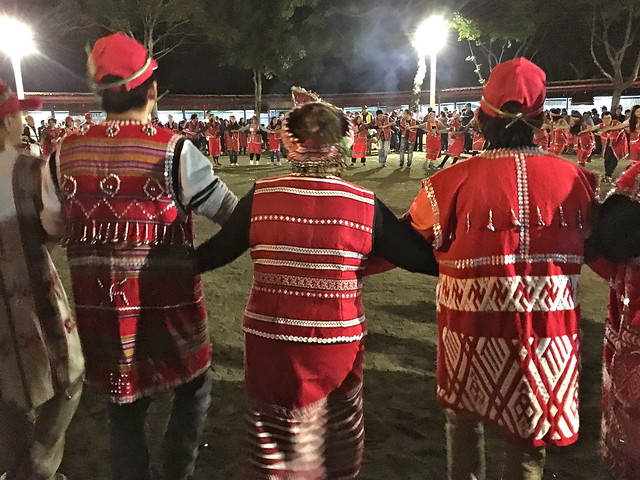
This year, I attended the Grand Pas'ta'ai festival in Wufeng (Hsinchu County) - my first Grand Pas'ta'ai but my third one in total. There is not much more I can say about it that hasn't been covered in these two previous posts from 2008 and 2010, but I do want to quickly note my observations of what made this one the "Grand" one.
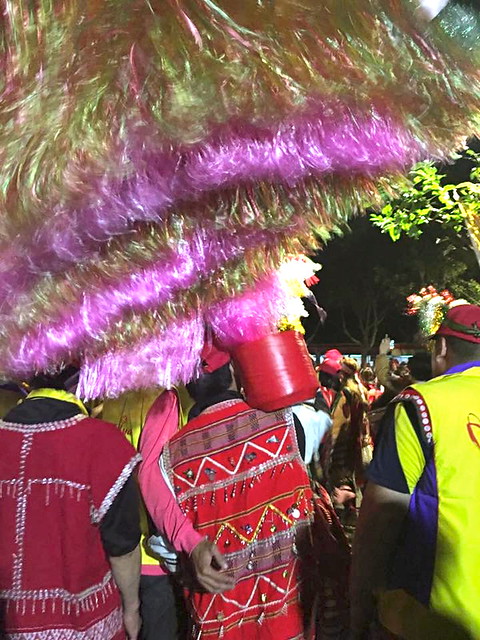
First, the Grand Pas'ta'ai is the only one where they bring out this long pole with red and white flags - I am sure one of my more knowledgeable friends knows what it's called. I was told by a bystander that it is extremely tall so as to reach to the heavens, to ask for blessings. Every few hours a group of people form an open circle around it and run around the regular dancing circle chanting rhythmically.
Secondly, there were more instances of running together into a circular group around one of the ceremonial placards - again I am sure one of my more knowledgeable friends knows why and can provide answers in the comments. I am not an expert. There were also more of these placards - which are shaped like open funnels to, I was told, entice the ta'ai (the 'mythical dark skinned wizard people' that the Saisiyat apparently massacred in ancient times, and now pay homage to by inviting them to this celebration around harvest time biennially) to join the celebration and give their blessings.
Finally, it's simply larger. In previous years we could always find a place to sit, and the dancing circle was fairly small, even when the public was invited to join. This year, the bleachers were packed, and the circle huge - at many points concentric circles were necessary. More or less every Saisiyat in the area attended, I was told, and many more people than usual were dressed in traditional garments.
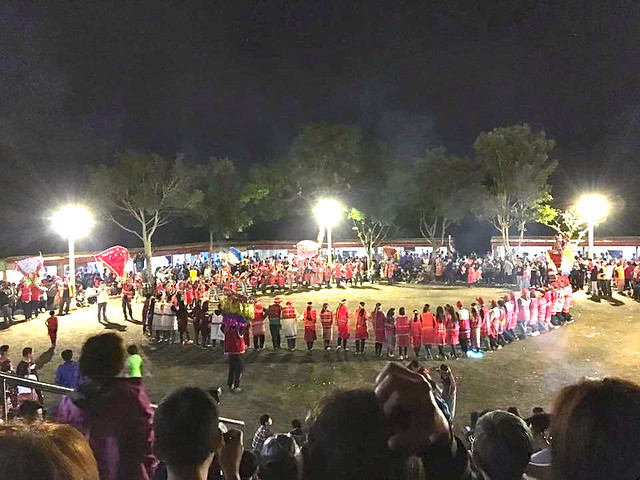
Now, I'd like to talk a bit about what made the event different for me this year. We stayed until dawn this year, and I will say that doing so does give one a different perspective on what this festival is like (the entire thing is held over three days, and for a real experience, try going for all three).
I did not get drunk this year - we were in charge of a rental car that folks who came with us drove out of Taipei, but we drove in the mountains. Although we theoretically had a ride to our homestay without having to drive (I figured I'd be drunk), deep down I knew I'd end up driving that car in the morning and intentionally paced myself. So did Brendan, but I also know that I am more able to cope with having stayed up all night and be present, coherent and in a state to drive after having done so (I just handle lack of sleep better than he does).
It also seems pertinent to point to a link between my experiences at Pas'ta'ai and recent happenings both in my somewhat-former social circle and the world.
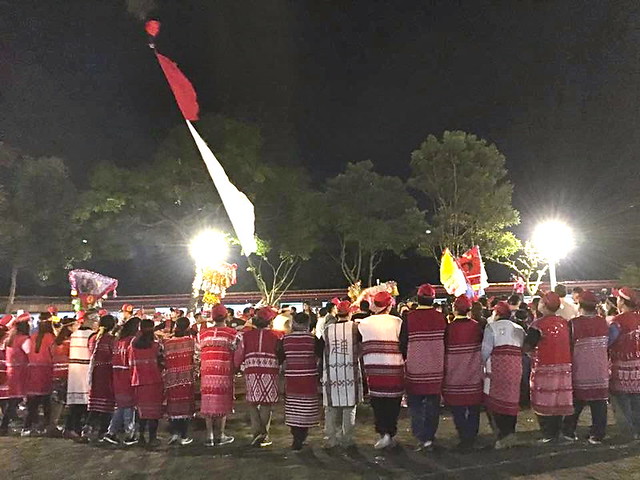
Around 3am, I took a walk around the back end of the ceremony site, where there is a covered walking area and several covered rooms where people can sleep, rest or put there things (it is pertinent to note that you do not have to fear for the safety of your personal belongings left unattended, as this plays into the next point). I came across two drunk teenage boys, both named Watan. In fact, I suspect one of them forgot his name and just called himself by his friend's name. They both started kinda-sorta hitting on me, one shouting "I AM SAISIYAT PEOPLE, I LOVE YOOUUUUU" before falling backwards off the ledge he was perched on (he was fine). The other kept half-coherently flirting while touching my shoulders and arms in a way I am not comfortable with any teenage boy doing - or really anyone I haven't implicitly invited to do so doing - let alone any drunk teenage boy. They were harmless and I wasn't scared or even bothered. But, I was trying to politely disengage.
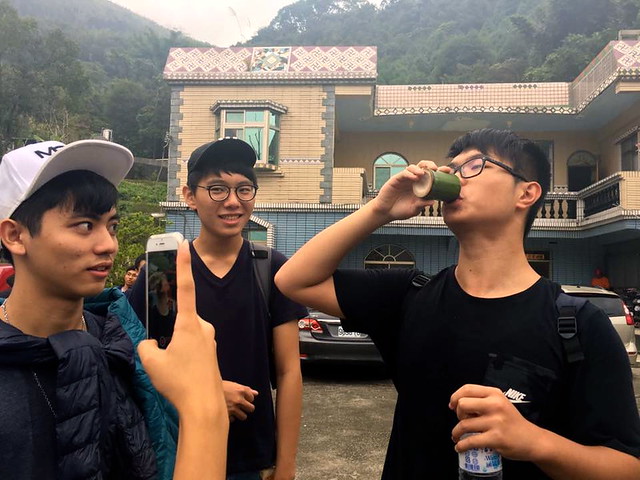
While this was happening, an older man was off to the side watching, and keeping a careful eye on the situation. He eyed me with the clear signal saying "Do you want me to intervene?" and I eyed him back with "I'm fine, thanks" and smiled at him as I finally, successfully, did disengage and go about my walk. It was clear that he was ready to step in.
This is not a story of drunk aborigines - frankly, that's about as stupid a narrative as talking about how drunk Westerners like to open a bottle of brandy on Christmas, so what? - which is a harmful stereotype. I see no issue with drinking scads of your local tipple on a big holiday. This is a story of what it takes to create a safe community and event. Saisiyat and Northeast American culture are as different as two cultures can be, and yet both me and this dude understood, on a universal level, how to respond to situations that could escalate into harassment or assault or even just making women feel uncomfortable. We both knew the universal Look of a bystander and a person in a situation.
There is no "cultural difference" where sexual harassment is concerned - to be clear, I do not think the drunk kids were sexually harassing me, and I really was not angered, offended or traumatized. In fact, it was kind of funny, because I knew I wasn't in any danger. But I see how it could have become that, and how someone watching it happen might have thought so. And there is no cultural difference when it comes to the collective responsibility of a community to keep their spaces and events safe and welcoming for all people.
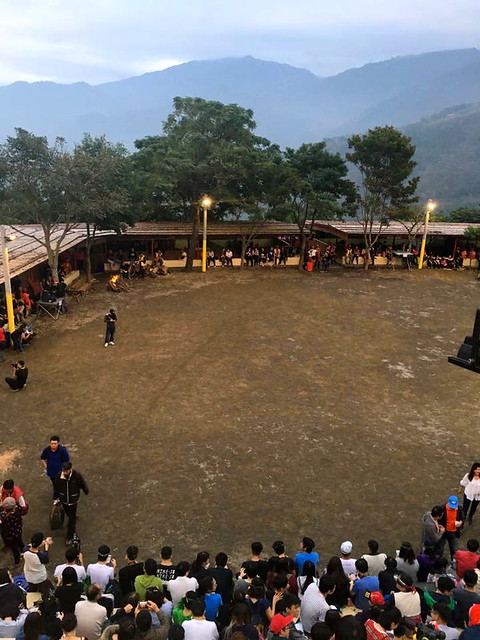
Let me reiterate, in case the point is not clear: a man at an all night dance party where approximately 100% of attendees are drunk (and this is expected, accepted and even encouraged), from a completely different culture, with whom I barely share a common language (because my Chinese isn't fluent - I am sure his is fine - and I do not speak Saisiyat), understood that collective responsibility. He got it. There was no "well public spaces aren't safe, women have to protect themselves (oh but everyone is welcome and happy)", none of this "you should be more careful", "it's not my job to create a safe event for women", "maybe you should protect yourself by learning self-defense or carrying mace", "I can't kick the harasser out of a public event" nonsense.
None.
Women at Pas'ta'ai are safe, because the community collectively ensures that they are.
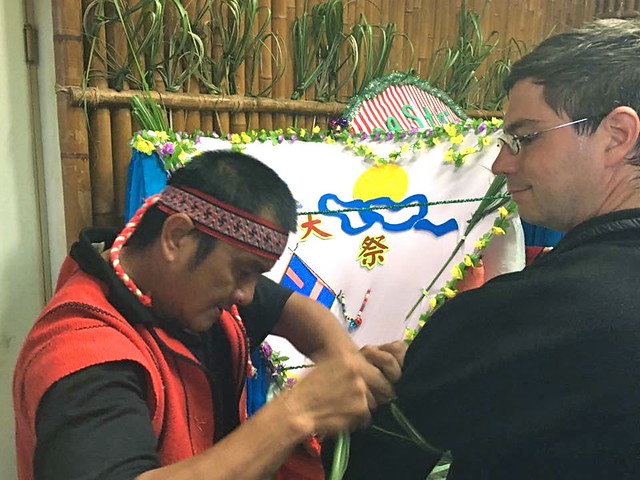
It really shows why I have no patience or sympathy for lily-livered "progressive nice guy but actually not an ally" claptrap, let alone right-wing or alt-right misogyny. It is not normal. This guy, at this event, is normal. With one look he made sure I knew he had my back. He didn't even have to intervene, and yet it was quite clear that women can expect safety. This is how it should be.
If you don't think you too have this responsibility, remind me not to attend your events.
This, too, bleeds into the absolutely devastating - to many of us who value progressive society - Trump win.
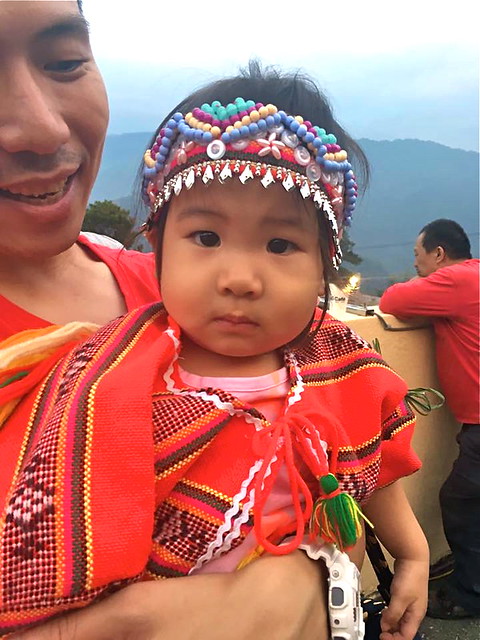
I've said it all on Facebook, but here we go. If you are calling for "unity" or asking us on the progressive left to "listen" and "empathize", I am not interested. There are many reasons - for example, the idea that Trump supporters voted that way because they are economically desperate is false, and even if it were true, it doesn't matter because voting for Trump was never going to bring back jobs that have irreversibly disappeared, or that Clinton is somehow "dishonest" (not really more so than any other politician and far more honest than Trump).
But they don't matter either - because there is no reason or excuse - not even one - that I can or ever will be able to accept for why one voted Trump.
Not. Even. One. Zero.
If you voted for someone with hate speech like that, on some level, you decided hate speech was okay. You decided it was acceptable enough to allow into the White House even if you do not personally say it. I do not care how much you hated Clinton, or how hard it is for you. I am not interested in your excuses for why hate speech was acceptable. Your reasons do not matter to me.
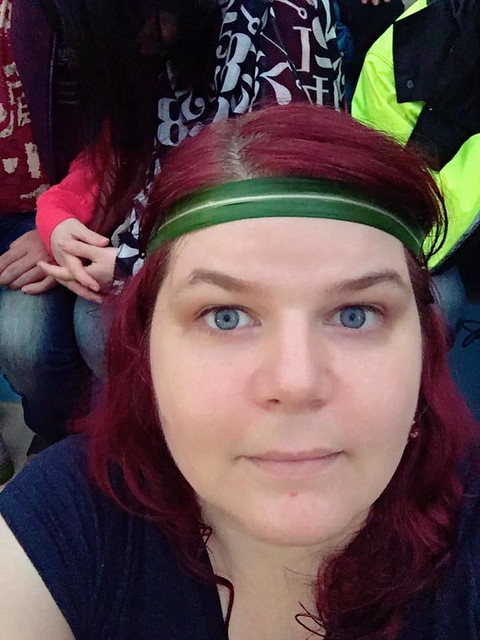
You decided it was acceptable to elect someone spewing hate speech, which is inherently a bigoted act. It is not enough to be personally okay or not bigoted in your daily life. You have to actively stand against it, or at least not vote for it, in order to qualify as a good person.
I am not interested in unity in this way - and calls for it do not sway me. If conflict is what is needed to defeat Trumpism, then although I don't like it, it may simply be what has to happen. I am surprisingly okay with disunity when the other side voted for hate speech.
But I do feel unity, just not with the US. At the end of the ceremony, as the night slowly turned to dawn, most people still at Pas'ta'ai came together in a circle and moved more or less together as we held hands and the tribe members sang (whether they were folk songs, just typical popular songs, traditional songs or hymns or other sacred music, I do not know). There was some pulling and discomfort, and not everyone was moving perfectly in sync. Occasionally our hands tore apart, but they always came back together. I was extremely tired and just sort of let the music sway me as I watched other people's feet, looking for the rhythm so I could do my part to keep the circle moving in time until the sun peeked out over the mountains beyond the ceremony grounds. Not just with Saisiyat participants but Taiwanese visitors of many backgrounds as well as other foreigners. All were welcome, and we collectively came together to ensure that all were safe. We probably disagree on some things, and maybe have differing values, but I could be sure we all more or less agreed on what the end goal was even if we had differing ideas on how to get there, and in that sense, we could work together.
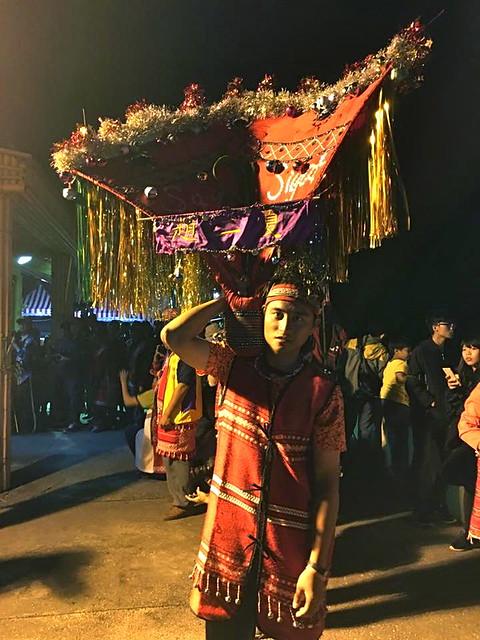
I thought back to the man who waited to see if he needed to intervene, and I thought about how my belongings were safe. I thought about how the majority of Taiwanese are interested in putting aside their past differences - Hoklo, waishengren, Hakka, aborigine or of non-Taiwanese roots - and moving forward. Perhaps not everyone, but enough to create the feeling of desire for change in society - change for the better, for all Taiwanese. I thought in my fuzzy sleep-deprived head about how, while Taiwan is not perfect, at least it is looking in the right direction. How Taiwan would never vote for someone like Trump - how open racism (including Islamophobia) and misogyny - even bragging about sexual assault - would be automatically disqualifying. I thought about how, even though I do not care for the various KMT candidates nor all of the DPP ones, that after the elections are over we can all more or less agree that voting for either candidate doesn't make you a bad person, and relationships resume as normal. In the past this also happened in the US - I may not have liked Bush, but he was more or less normal and acceptable within American democracy. In Taiwan, every candidate is at least nominally qualified and always educated enough to take on the role he or she is campaigning for.
I thought about how Taiwan elected a female president without much fuss at all and the majority of Taiwanese were annoyed, not turned, by attempts at making her singlehood and sexual orientation (which is unknown, but who cares?) into a scandal.
I thought about how Taiwanese fought for and won transitional justice, and when they do finally get marriage equality (one hopes within the next year), chances of people committing hate crimes against LGBT+ people are slim to none. Nobody's going to refuse to issue licenses, either. Such a stark difference from my own country.
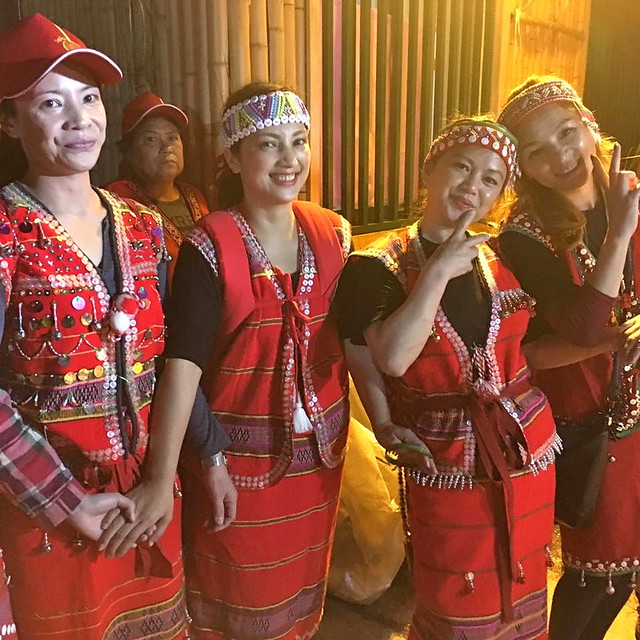
And as we danced together, arms linked, and I grabbed the hands of people to either side of me regardless of who they were and we all tried to dance together, that I am interested in unity.
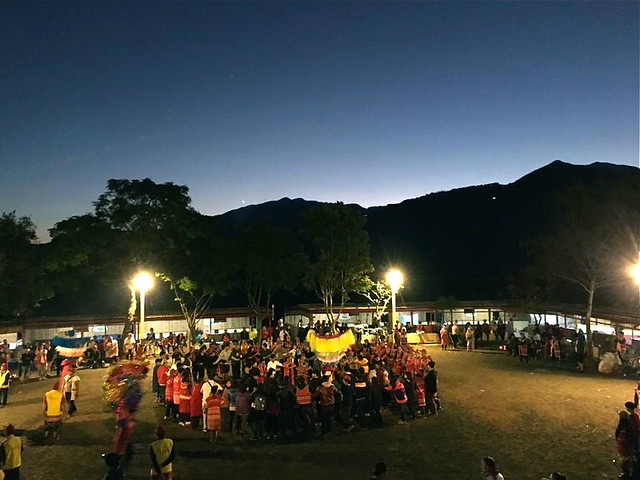
Unity based not on ethnicity or culture - I'll never be Saisiyat or "ethnically Chinese" in any way, though I would someday like to be Taiwanese - or even on totally shared values, as we all have to deal with people who think somewhat differently from us. But unity based on being fundamentally decent versus indecent - which is really the problem in the US. It's not liberal or conservative (I can find some points of agreement with conservatives on personal freedoms, for example) or "this person won and that person lost but they are both fundamentally decent people", which is how every previous election has been. This is different. This is indecent, this is a rhinoceros. I am not interested in unity where aggressive action is called for. I am when everyone involved is more or less working toward the same goal, though we have different ideas about to get there, and looking to the future with a progressive and tolerant eye, where people have "something" in them that knows right from wrong, where hate speech is not welcome.
I do realize that totalitarianism can hit any culture, and there are negatives about Taiwan (here's one example) that I could discuss, but fundamentally I think the culture is in a good place, and decency still reigns here.
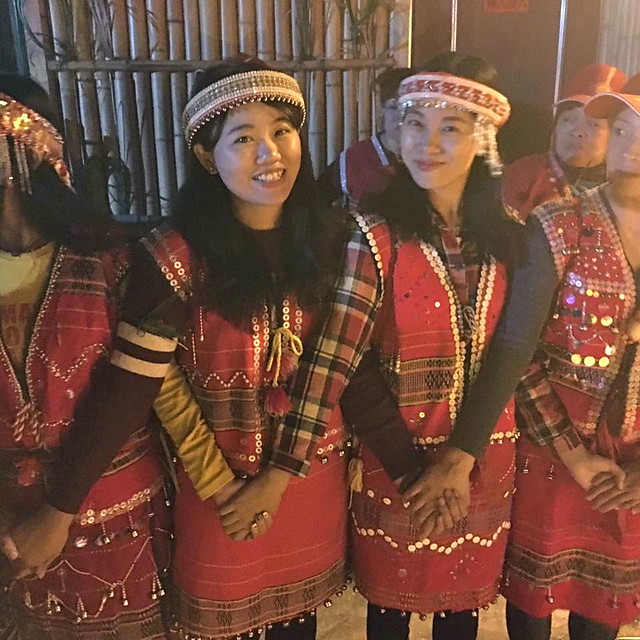
I cannot say this is true of my country right now, where I genuinely feel that the only thing separating Trump and Hitler is that Trump is too stupid to have a master plan, but I see no difference between Trump voters and Nazi voters (who, remember, were not all Nazis themselves - some just looked the other way).
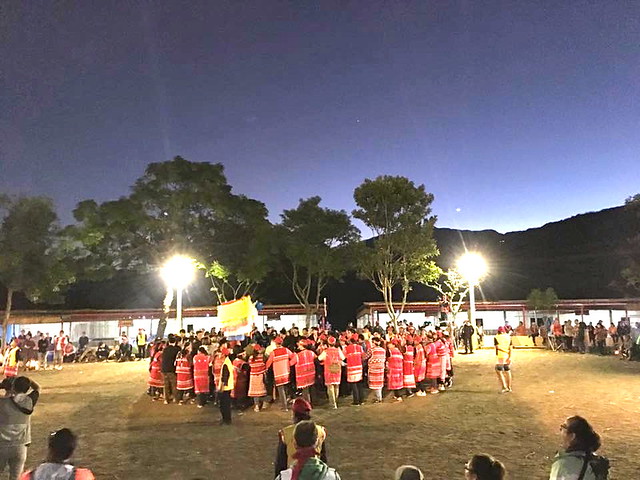
I'm interested in Taiwanese unity - not unification, mind you, but unity. And while I must hold an American passport for the time being, I can no longer consider myself truly American in any real sense.
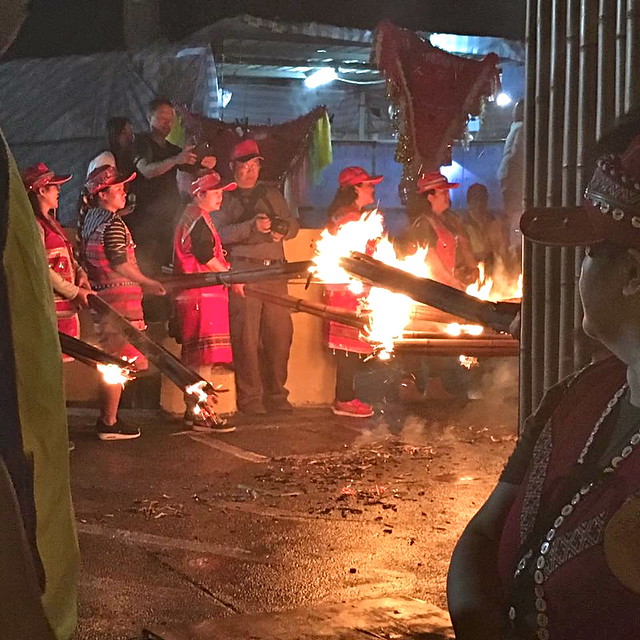
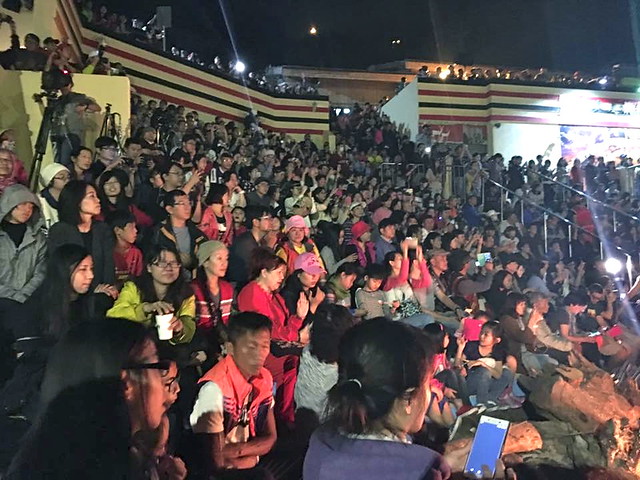
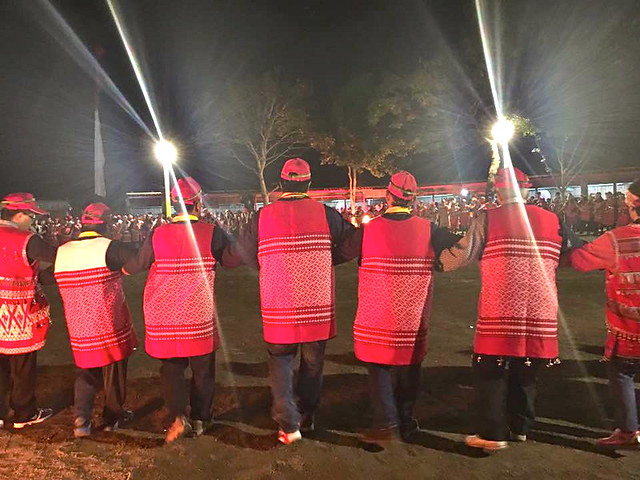
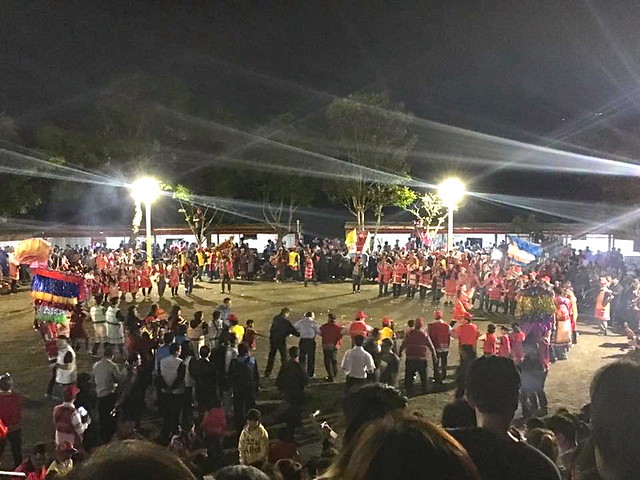
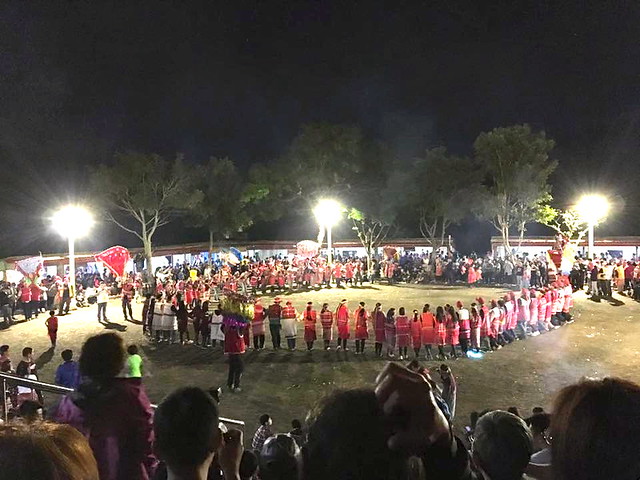
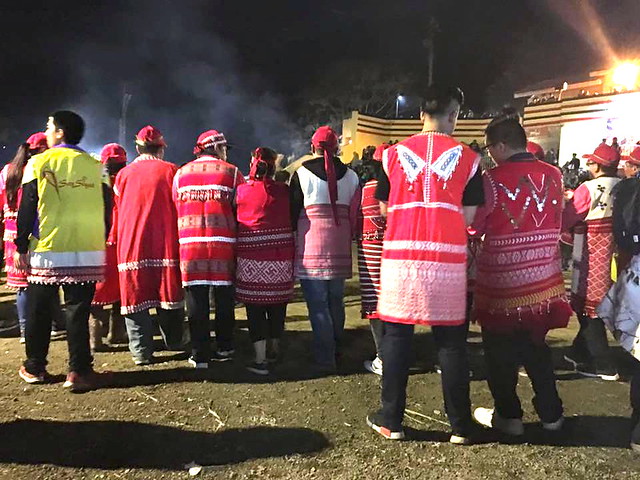
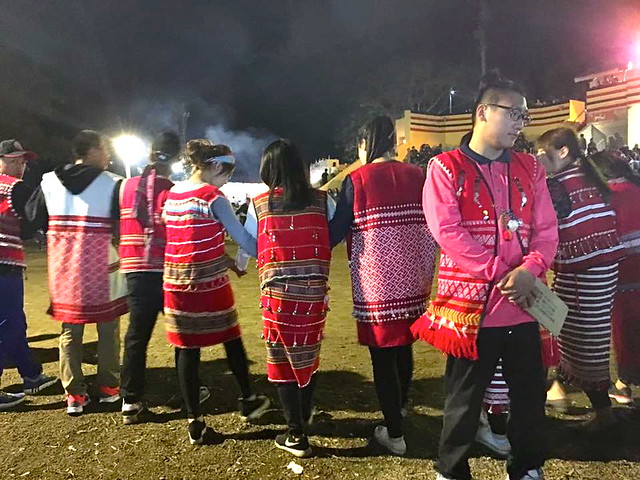
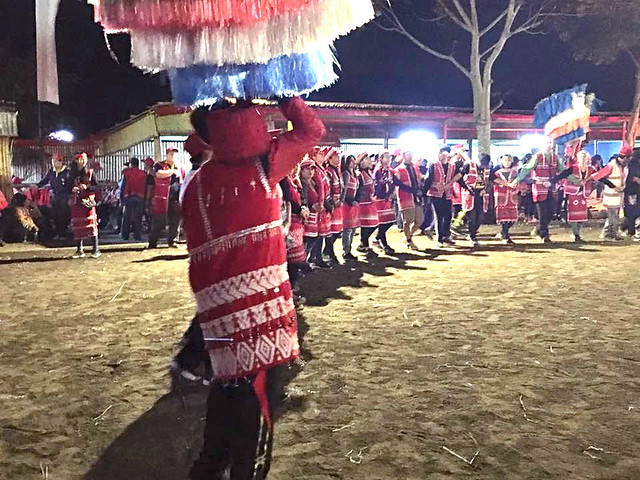
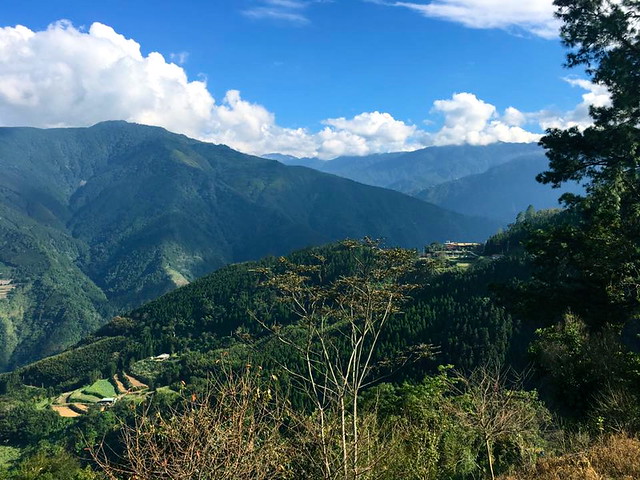
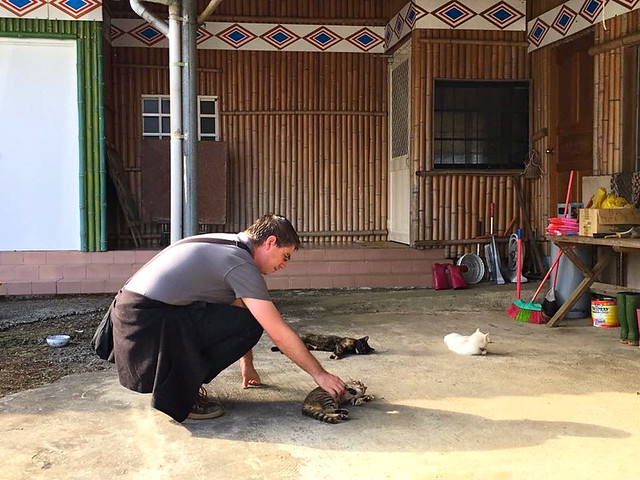
https://www.flickr.com/photos/53660106@N02/30981155555/in/dateposted-public/
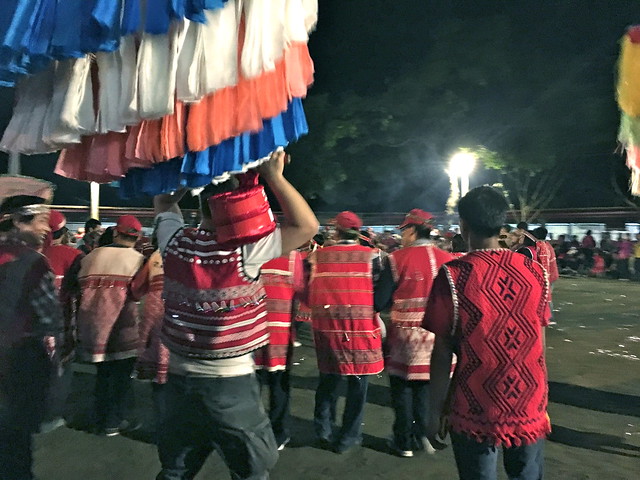
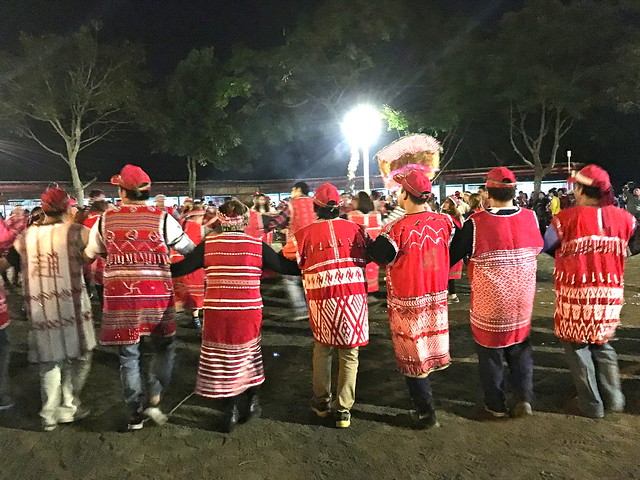
Saturday, June 18, 2016
In Defense of the 90-minute lunchtime nap and the convenience store sleepers
Greetings from Kaohsiung! I taught a workshop down here today and, seeing as that meant my HSR tickets were free, I've decided to spend the weekend (Brendan will be joining me soon). I'll be doing something similar in Tainan next week.
Anyway, I have a quick little thing to say, a dispatch from the field I guess you could call it.
When I walked in to the office with my co-teacher, it was just at the end of the 90-minute lunch break (12-1:30) which, as many of you know, is a pretty normal thing in Taiwan. Generally you have a half-hour or one-hour lunch, and then lights are turned down in the office and people often rest or even take naps for the rest of the time (I suppose if you wanted to go out to a restaurant you could also do that).
I used to, if not laugh at this, at least smile. My baseline assumption was that people often don't get enough sleep in Taiwan due to crazy working hours and impossible school expectations, therefore they have to nap in the middle of the day. I viewed it as a symptom of a problem.
A lot of expats do this - and I'm not pretending I'm better than they are, because I did it too in this case. They see something different from their own culture and immediately think of ways that it's worse than how things are done where they came from. Perhaps only later, after an initial period of rejection (even mildly so), do many come around to, if not a better way of doing things, a way that works considering how things work in this other country.
And you know what? It is true, working hours in this country are crazy - when you consider yourself as getting home 'early' at 7 or 8pm, that's crazy. And education expectations ARE nuts - children should not be studying at buxibans after school 5 days a week and on Saturday until 10pm or later, and still have homework to do on top of that. It is likely that this does have something to do with the 'lunchtime nap' culture at so many Taiwanese offices.
I have to say, though, that despite all of the above being a real problem, I've come around to the nap time idea. I have a non-traditional work schedule myself, but I sometimes come home from a lunchtime class, carve out a half an hour or an hour to nap, drink a cup of coffee and then continue with my work day.
First of all, napping is not necessarily something people do just because they are under-rested - even when I got a full night's sleep, sometimes after a busy morning and knowing I have a busy evening coming up, I do want more than a one-hour break before I have to be up at bat again for the rest of the day. Sometimes, that extra half hour isn't necessarily needed to sleep per se, but because a 90-minute break is more restorative than a one-hour break. I feel like I really got to give my mind enough time to rest, and I imagine locals feel the same. I don't always sleep - sometimes I veg out on the couch or just order a pot of tea and sit in an armchair in a cafe. I might read a book or pet my cats. I try my best not to surf the Internet, because that's not restful (it is pleasantly distracting, though).
Even if you work a more normal day - let's say you can leave at 6 - I do feel like a longer, 90-minute break is likely to make you more productive in the afternoon, just because you feel like you got a real rest. I know when I have my afternoons free, I feel more effective in my evening classes than when I don't (and I don't always).
Secondly, you've probably noticed this isn't just an office thing. Laborers and workers lay out on the floor in shops under construction or in the shade on sidewalks. I once - and I am not joking - saw one sleeping half in a manhole, with his upper half on the sidewalk, near the Youth Park. People crowd 7-11s and Family Marts to sleep at the tables. Drivers park their taxis or trucks and lean back for naps. I've joked that every coffee shop has to have at least one businessman sleeping at a table with a half-finished cup of coffee for feng shui purposes, rather like the fish tanks you often see near the doors of businesses. He should be oriented to the West or facing the cash register to bring maximum profit to the business.
I have come to kind of admire folks who can just lay out like this, snooze away on a sidewalk or at a convenience store and not give two craps about how they look, whether they are snoring or drooling, who sees them or what sort of germs might be currently invading the skin on their faces. I aspire to have such a "give zero fucks" attitude. I mean, I'm getting there, I already give very few fucks indeed, but they give ZERO, if not a negative number of fucks, and that is really the best goal in life. Before I leave Taiwan I WILL take a nap on a shady sidewalk just to show I've made it, and I am a better person for it.
Of course, it also makes sense given the climate here. Half the country is tropical year-round. In the summer it's straight up tropical in the entire country. In the winter the weather is absolutely depressing in Taipei - all dark clouds and rain and humid chilliness without central heating. I can understand the need for something like a siesta to either restore oneself in the face of yet another day of black clouds and cold rain, or to be still and cool during the hottest part of the day.
So, I acknowledge there are some issues with overwork, both in employment and in school, in Taiwan. I have to say, though, that I've come around to the 90-minute lunches and after-lunch naps. That change not only in how I see these naps but also the fact that I now engage in them when I get a chance has been a good reminder not to look first at why the way a different culture does something is ultimately worse than the way mine (or yours) does, but first to look for how and why it works in a local context. That doesn't mean every practice is ultimately better or just different - my personal pet peeve, scooters that speed on the right past buses that are stopped and letting passengers on and off, which is a risk to the lives of the passengers as well as the scooter driver, for instance, is unequivocally worse - but it's worth considering positively first.
Anyway, I have a quick little thing to say, a dispatch from the field I guess you could call it.
When I walked in to the office with my co-teacher, it was just at the end of the 90-minute lunch break (12-1:30) which, as many of you know, is a pretty normal thing in Taiwan. Generally you have a half-hour or one-hour lunch, and then lights are turned down in the office and people often rest or even take naps for the rest of the time (I suppose if you wanted to go out to a restaurant you could also do that).
I used to, if not laugh at this, at least smile. My baseline assumption was that people often don't get enough sleep in Taiwan due to crazy working hours and impossible school expectations, therefore they have to nap in the middle of the day. I viewed it as a symptom of a problem.
A lot of expats do this - and I'm not pretending I'm better than they are, because I did it too in this case. They see something different from their own culture and immediately think of ways that it's worse than how things are done where they came from. Perhaps only later, after an initial period of rejection (even mildly so), do many come around to, if not a better way of doing things, a way that works considering how things work in this other country.
And you know what? It is true, working hours in this country are crazy - when you consider yourself as getting home 'early' at 7 or 8pm, that's crazy. And education expectations ARE nuts - children should not be studying at buxibans after school 5 days a week and on Saturday until 10pm or later, and still have homework to do on top of that. It is likely that this does have something to do with the 'lunchtime nap' culture at so many Taiwanese offices.
I have to say, though, that despite all of the above being a real problem, I've come around to the nap time idea. I have a non-traditional work schedule myself, but I sometimes come home from a lunchtime class, carve out a half an hour or an hour to nap, drink a cup of coffee and then continue with my work day.
First of all, napping is not necessarily something people do just because they are under-rested - even when I got a full night's sleep, sometimes after a busy morning and knowing I have a busy evening coming up, I do want more than a one-hour break before I have to be up at bat again for the rest of the day. Sometimes, that extra half hour isn't necessarily needed to sleep per se, but because a 90-minute break is more restorative than a one-hour break. I feel like I really got to give my mind enough time to rest, and I imagine locals feel the same. I don't always sleep - sometimes I veg out on the couch or just order a pot of tea and sit in an armchair in a cafe. I might read a book or pet my cats. I try my best not to surf the Internet, because that's not restful (it is pleasantly distracting, though).
Even if you work a more normal day - let's say you can leave at 6 - I do feel like a longer, 90-minute break is likely to make you more productive in the afternoon, just because you feel like you got a real rest. I know when I have my afternoons free, I feel more effective in my evening classes than when I don't (and I don't always).
Secondly, you've probably noticed this isn't just an office thing. Laborers and workers lay out on the floor in shops under construction or in the shade on sidewalks. I once - and I am not joking - saw one sleeping half in a manhole, with his upper half on the sidewalk, near the Youth Park. People crowd 7-11s and Family Marts to sleep at the tables. Drivers park their taxis or trucks and lean back for naps. I've joked that every coffee shop has to have at least one businessman sleeping at a table with a half-finished cup of coffee for feng shui purposes, rather like the fish tanks you often see near the doors of businesses. He should be oriented to the West or facing the cash register to bring maximum profit to the business.
I have come to kind of admire folks who can just lay out like this, snooze away on a sidewalk or at a convenience store and not give two craps about how they look, whether they are snoring or drooling, who sees them or what sort of germs might be currently invading the skin on their faces. I aspire to have such a "give zero fucks" attitude. I mean, I'm getting there, I already give very few fucks indeed, but they give ZERO, if not a negative number of fucks, and that is really the best goal in life. Before I leave Taiwan I WILL take a nap on a shady sidewalk just to show I've made it, and I am a better person for it.
Of course, it also makes sense given the climate here. Half the country is tropical year-round. In the summer it's straight up tropical in the entire country. In the winter the weather is absolutely depressing in Taipei - all dark clouds and rain and humid chilliness without central heating. I can understand the need for something like a siesta to either restore oneself in the face of yet another day of black clouds and cold rain, or to be still and cool during the hottest part of the day.
So, I acknowledge there are some issues with overwork, both in employment and in school, in Taiwan. I have to say, though, that I've come around to the 90-minute lunches and after-lunch naps. That change not only in how I see these naps but also the fact that I now engage in them when I get a chance has been a good reminder not to look first at why the way a different culture does something is ultimately worse than the way mine (or yours) does, but first to look for how and why it works in a local context. That doesn't mean every practice is ultimately better or just different - my personal pet peeve, scooters that speed on the right past buses that are stopped and letting passengers on and off, which is a risk to the lives of the passengers as well as the scooter driver, for instance, is unequivocally worse - but it's worth considering positively first.
Monday, May 30, 2016
The Fu-Jen Curfew Protests: religious vs. cultural conservatism
So, a few of my friends have shared this post about the protests surrounding curfews at the women's dorms of Fu-Jen Catholic University in New Taipei (link in Chinese).
I understood despite my piss-poor Chinese reading ability that the women's dorms have a curfew and are locked after that time, while the men's dorms are not - and this has not changed despite an ongoing dialogue with the administration that tends to agree and avoid rather than actually discuss the issue. The protestors (who seem to be organized as FJU Cinderella) are giving press conferences and engaging in a hunger strike.
Yes, the entire reason for the curfew is that the powers that be are terrified of female sexuality. It's not for safety reasons, or because there is some sort of known threat, or even for legal reasons. It's because those nice young university girls might (gasp!) be sexually active and do what they please with their bodies. We can't have that now can we! So many pearls to clutch, so little time!
My first thought, though, was not "Taiwan can be really conservative!" - it was not to attribute this particular problem to Taiwanese culture at all but rather to religious, especially (but not limited to) Catholicism. American-style fundie nonsense comes to Taiwan!
I realize there is a certain prudishness about Taiwanese culture as it is, and many aspects of life here are dealt with more conservatively at home for reasons that have nothing to do with Western influence or Western religion. As a friend put it, culture in this part of the world started to turn prudish in the 19th century before missionaries even got here. But, that prudishness can't be analyzed along Western lines, because it absolutely does not follow them (where in the West are you going to find sexy church dancers along the lines of Taiwan's sexy temple dancers?), and in many ways Taiwan is not all that conservative. I've said several times it is, in my experience, more progressive than any other country in Asia by a very wide margin.
That prudishness does come out in college dorm rules - but it seems to be equally meted out to men and women. At least, as far as I have been told (I have never lived in a dorm here), while women's dorms often don't allow male visitors at all or after certain hours, and many have curfews, that men's dorms do too. The double standard that men can play but women must keep their legs closed (and only the 'bad sort' of women let the men play) seems, to me, to come out later in life when wives are supposed to be forgiving of their husbands' indiscretions, men are seen as horndogs unable to help themselves, but mistresses are evil succubi and unnatural she-beasts. At college age, the censure against sex - because, again this is about sex plain and simple - seems to be aimed at both young women and men.
As per my memory, when my sister attended NCCU no men were allowed in her dorm, but she was likewise not allowed in the men's dorms. I've been told by Zhongshan alumni that the men's dorms are further up the mountain, cloistered away farther from main campus life (and therefore more susceptible to monkey invasion) than the women's dorms.
But, all I know is what I've been told by people who have actually had Taiwanese college dorm experiences. If I'm wrong about this or you have counter examples (or examples that support this view), please do leave them in the comments. I'm entirely open to being wrong about this as I am not writing from direct experience.
If that is true, however, the practice of keeping women under lock and key but not men, to me, feels like more of a religious stick-up-the-butt than a cultural one. That it's Catholicism, specifically, causing the problem here with the church's outdated and frankly offensive views on women's rights and equality. (I want to emphasize this as an establishment problem, not a personal one: just because the church has views I find repugnant doesn't mean those who identify with that religion necessarily have similar views. It is absolutely possible to be an openminded, even feminist, Catholic, though it does entail differing with the church on certain issues).
That's not to say that very traditional thinkers in Taiwan aren't woman-blamers and chauvinists: many are. A student of mine from a college in Danshui told me about how her father lets her brother sleep at friends' houses, doesn't have a curfew for him when he is home, and lets him stay in the dorms at his own university, whereas she is expected to live at home with her parents and commute to college, and be home by a certain time. This attitude is not unheard of here. It just doesn't strike me as the reason why the women are locked up like untrustworthy lusty schoolgirls while the boys are allowed to hot-dog it all over town without censure. No thought given to the notion that young people are gonna get it on (to be honest, not me, despite living in a co-ed dorm freshman year - I was a hopeless nerd and kind of still am), and that's only a problem if you make it one by not educating them properly or by thinking its somehow wrong or unnatural.
That, to me, feels particularly religious in origin. I hear echoes of the Republican party and religious right in it. Hell (pun intended) it's one of the many reasons I left the US: as an atheist I was sick of public discourse being skewed so far to the right that moderates in the US look conservative in every other Western country, and liberals in the US are moderates by any reasonable standard elsewhere. I am a flaming liberal by American standards but pretty moderate by European ones, and I see myself as a moderate. I'm not a Communist or anarchist after all and I am married, which is a pretty establishment thing to do, although I would not say I have a traditional marriage. I was sick of being demonized for not only not believing in God, but not believing in the whole raft of misogynistic bullshit that seems to come with strong religious faith. The whole aspirin-between-the-knees victim-blamey "she had it coming wearing that skirt" "boys will be boys" purity ring flood of pure stinky douche that has poisoned and divided my own clumsy culture by creating a culture war that nobody with any sense wanted.
I would hate to see it start up here. Taiwanese culture grows more progressive by the day. The last thing it needs is a bunch of Western-style fundies screwing it up.
I understood despite my piss-poor Chinese reading ability that the women's dorms have a curfew and are locked after that time, while the men's dorms are not - and this has not changed despite an ongoing dialogue with the administration that tends to agree and avoid rather than actually discuss the issue. The protestors (who seem to be organized as FJU Cinderella) are giving press conferences and engaging in a hunger strike.
Yes, the entire reason for the curfew is that the powers that be are terrified of female sexuality. It's not for safety reasons, or because there is some sort of known threat, or even for legal reasons. It's because those nice young university girls might (gasp!) be sexually active and do what they please with their bodies. We can't have that now can we! So many pearls to clutch, so little time!
My first thought, though, was not "Taiwan can be really conservative!" - it was not to attribute this particular problem to Taiwanese culture at all but rather to religious, especially (but not limited to) Catholicism. American-style fundie nonsense comes to Taiwan!
I realize there is a certain prudishness about Taiwanese culture as it is, and many aspects of life here are dealt with more conservatively at home for reasons that have nothing to do with Western influence or Western religion. As a friend put it, culture in this part of the world started to turn prudish in the 19th century before missionaries even got here. But, that prudishness can't be analyzed along Western lines, because it absolutely does not follow them (where in the West are you going to find sexy church dancers along the lines of Taiwan's sexy temple dancers?), and in many ways Taiwan is not all that conservative. I've said several times it is, in my experience, more progressive than any other country in Asia by a very wide margin.
That prudishness does come out in college dorm rules - but it seems to be equally meted out to men and women. At least, as far as I have been told (I have never lived in a dorm here), while women's dorms often don't allow male visitors at all or after certain hours, and many have curfews, that men's dorms do too. The double standard that men can play but women must keep their legs closed (and only the 'bad sort' of women let the men play) seems, to me, to come out later in life when wives are supposed to be forgiving of their husbands' indiscretions, men are seen as horndogs unable to help themselves, but mistresses are evil succubi and unnatural she-beasts. At college age, the censure against sex - because, again this is about sex plain and simple - seems to be aimed at both young women and men.
As per my memory, when my sister attended NCCU no men were allowed in her dorm, but she was likewise not allowed in the men's dorms. I've been told by Zhongshan alumni that the men's dorms are further up the mountain, cloistered away farther from main campus life (and therefore more susceptible to monkey invasion) than the women's dorms.
But, all I know is what I've been told by people who have actually had Taiwanese college dorm experiences. If I'm wrong about this or you have counter examples (or examples that support this view), please do leave them in the comments. I'm entirely open to being wrong about this as I am not writing from direct experience.
If that is true, however, the practice of keeping women under lock and key but not men, to me, feels like more of a religious stick-up-the-butt than a cultural one. That it's Catholicism, specifically, causing the problem here with the church's outdated and frankly offensive views on women's rights and equality. (I want to emphasize this as an establishment problem, not a personal one: just because the church has views I find repugnant doesn't mean those who identify with that religion necessarily have similar views. It is absolutely possible to be an openminded, even feminist, Catholic, though it does entail differing with the church on certain issues).
That's not to say that very traditional thinkers in Taiwan aren't woman-blamers and chauvinists: many are. A student of mine from a college in Danshui told me about how her father lets her brother sleep at friends' houses, doesn't have a curfew for him when he is home, and lets him stay in the dorms at his own university, whereas she is expected to live at home with her parents and commute to college, and be home by a certain time. This attitude is not unheard of here. It just doesn't strike me as the reason why the women are locked up like untrustworthy lusty schoolgirls while the boys are allowed to hot-dog it all over town without censure. No thought given to the notion that young people are gonna get it on (to be honest, not me, despite living in a co-ed dorm freshman year - I was a hopeless nerd and kind of still am), and that's only a problem if you make it one by not educating them properly or by thinking its somehow wrong or unnatural.
That, to me, feels particularly religious in origin. I hear echoes of the Republican party and religious right in it. Hell (pun intended) it's one of the many reasons I left the US: as an atheist I was sick of public discourse being skewed so far to the right that moderates in the US look conservative in every other Western country, and liberals in the US are moderates by any reasonable standard elsewhere. I am a flaming liberal by American standards but pretty moderate by European ones, and I see myself as a moderate. I'm not a Communist or anarchist after all and I am married, which is a pretty establishment thing to do, although I would not say I have a traditional marriage. I was sick of being demonized for not only not believing in God, but not believing in the whole raft of misogynistic bullshit that seems to come with strong religious faith. The whole aspirin-between-the-knees victim-blamey "she had it coming wearing that skirt" "boys will be boys" purity ring flood of pure stinky douche that has poisoned and divided my own clumsy culture by creating a culture war that nobody with any sense wanted.
I would hate to see it start up here. Taiwanese culture grows more progressive by the day. The last thing it needs is a bunch of Western-style fundies screwing it up.
Subscribe to:
Posts (Atom)
